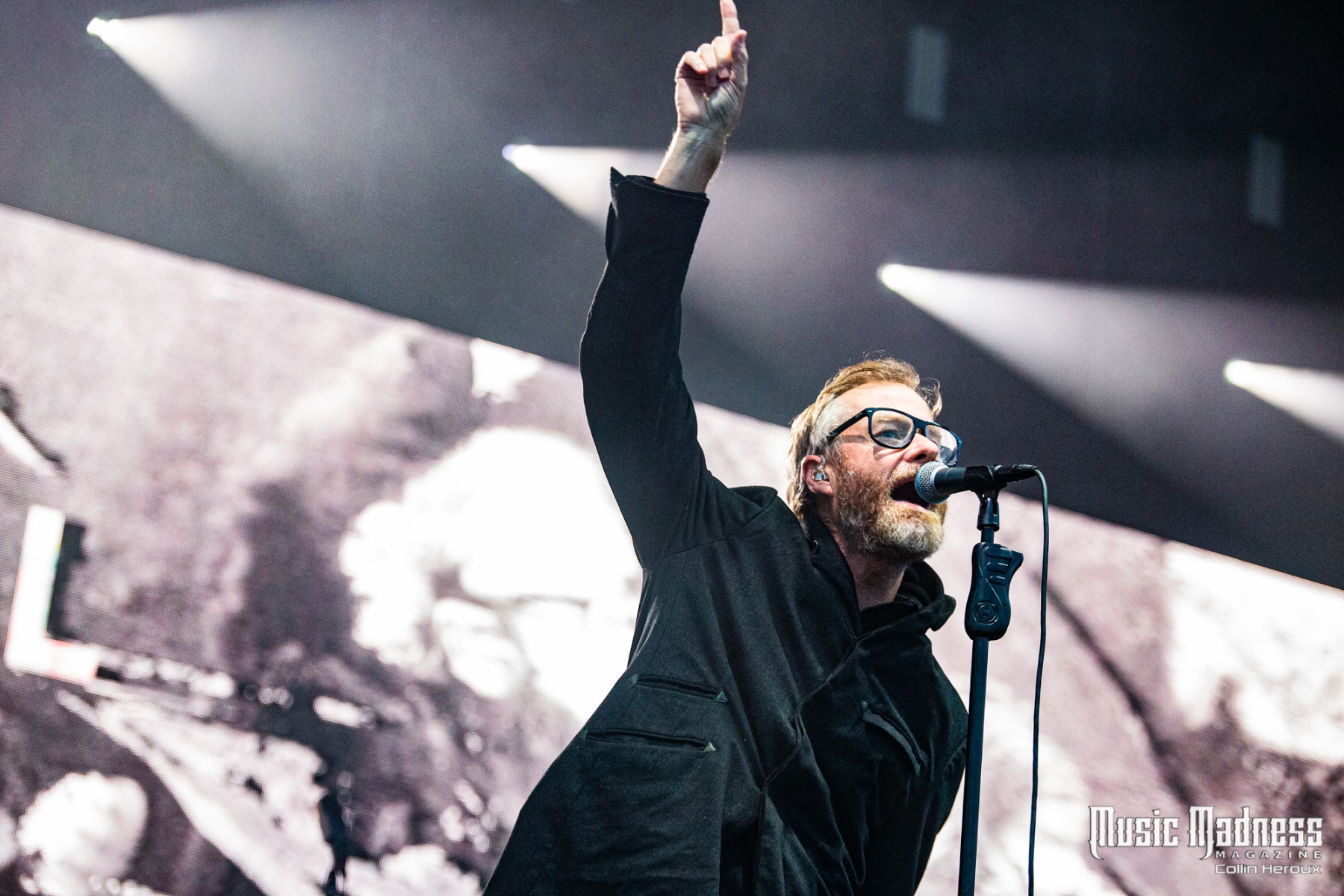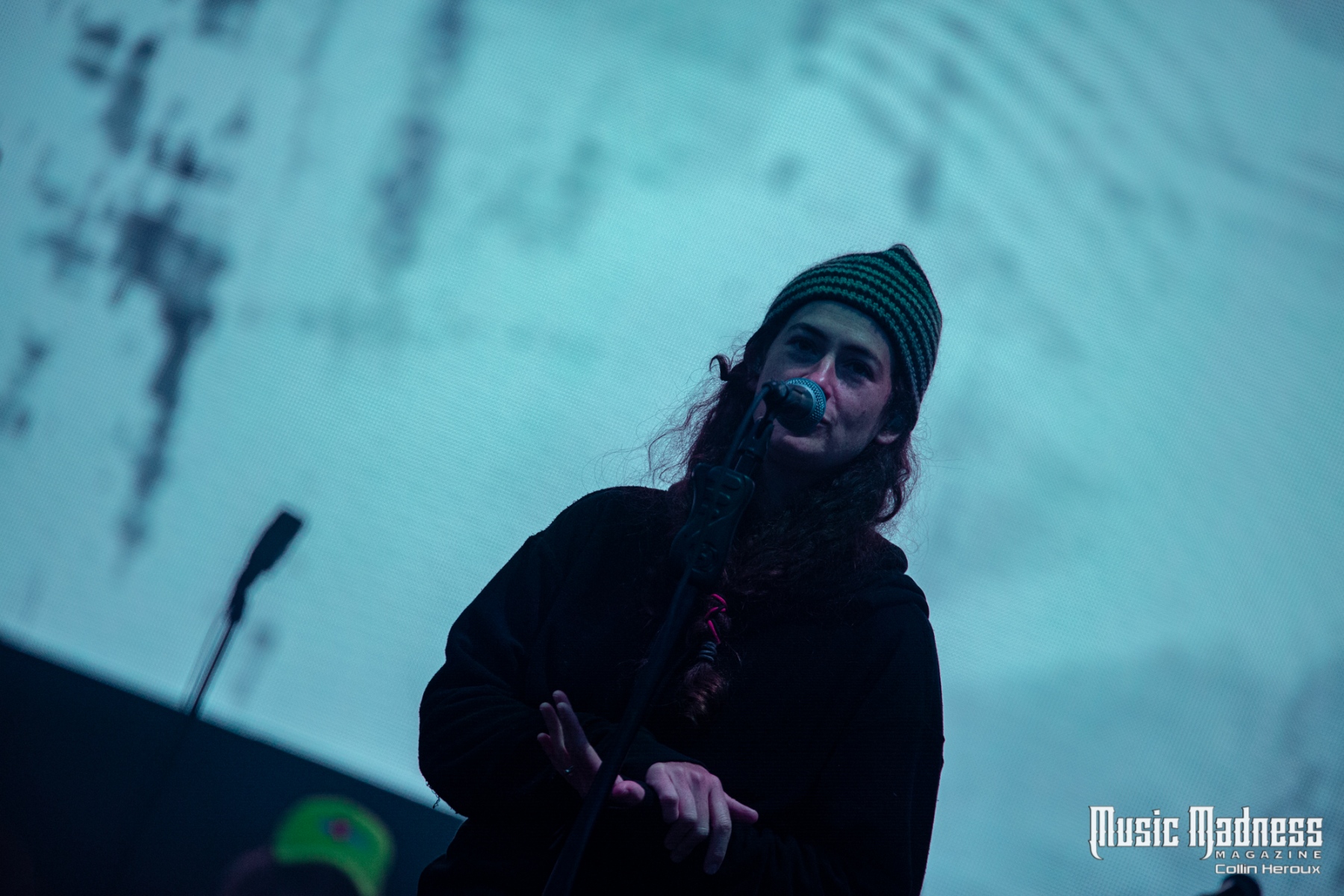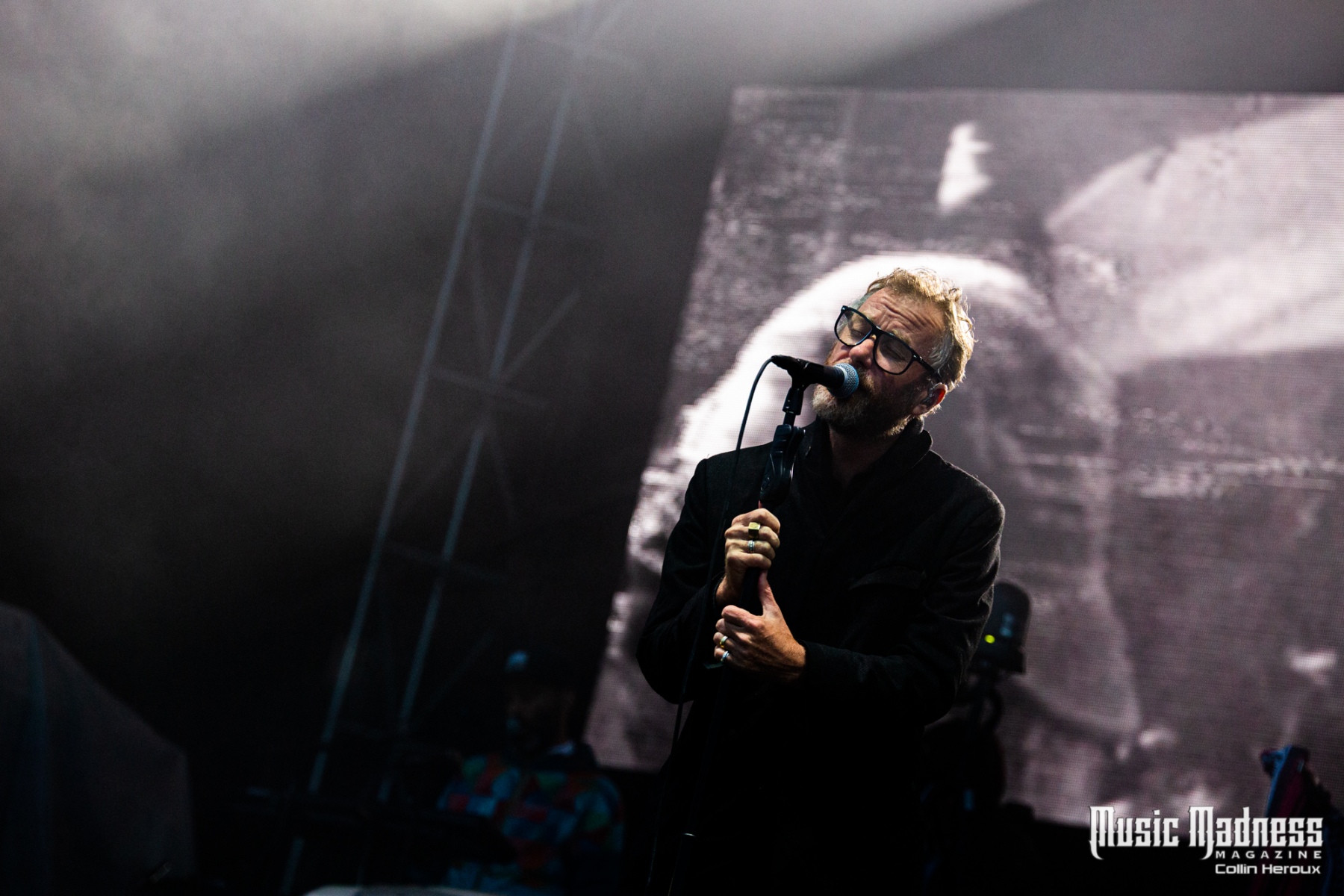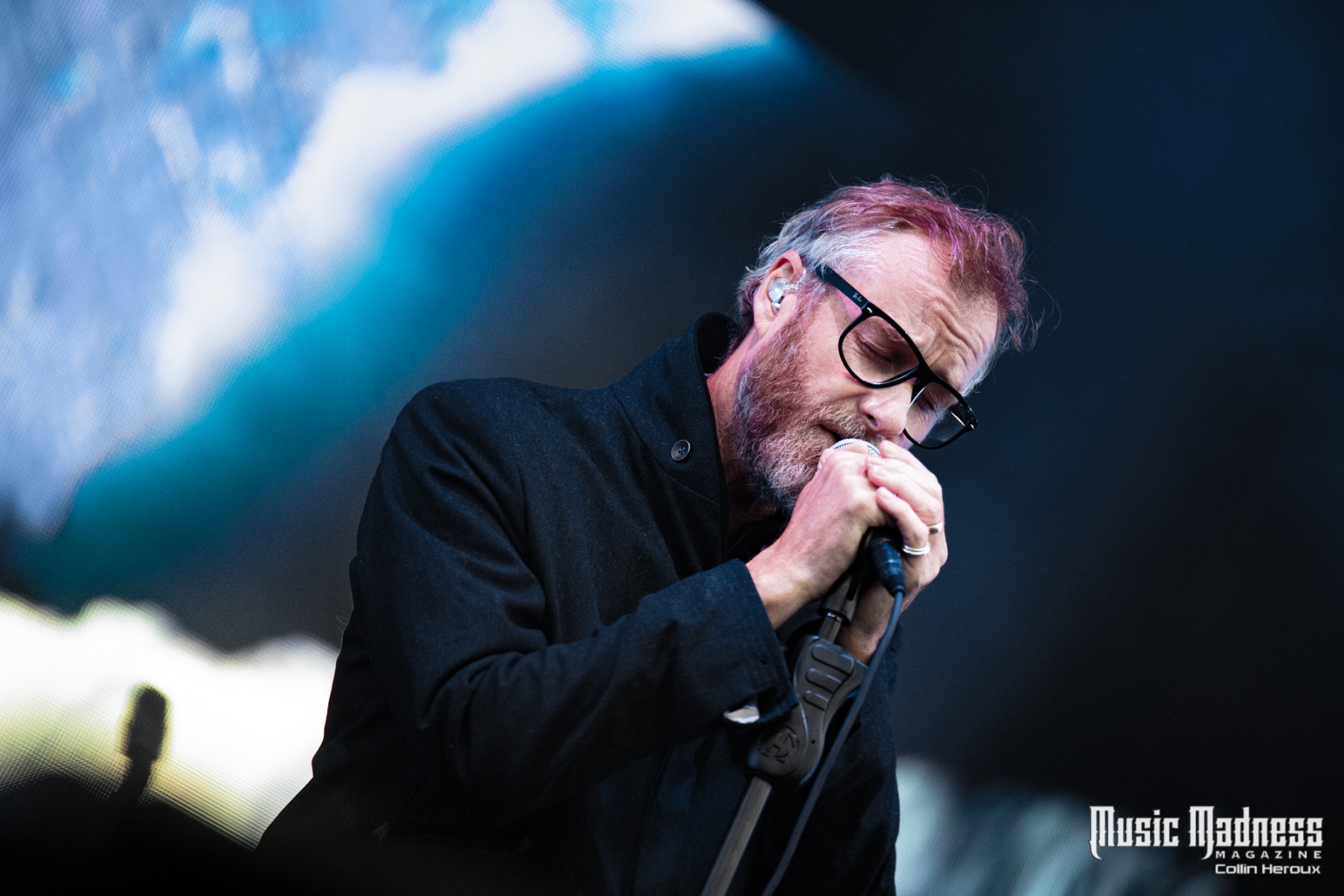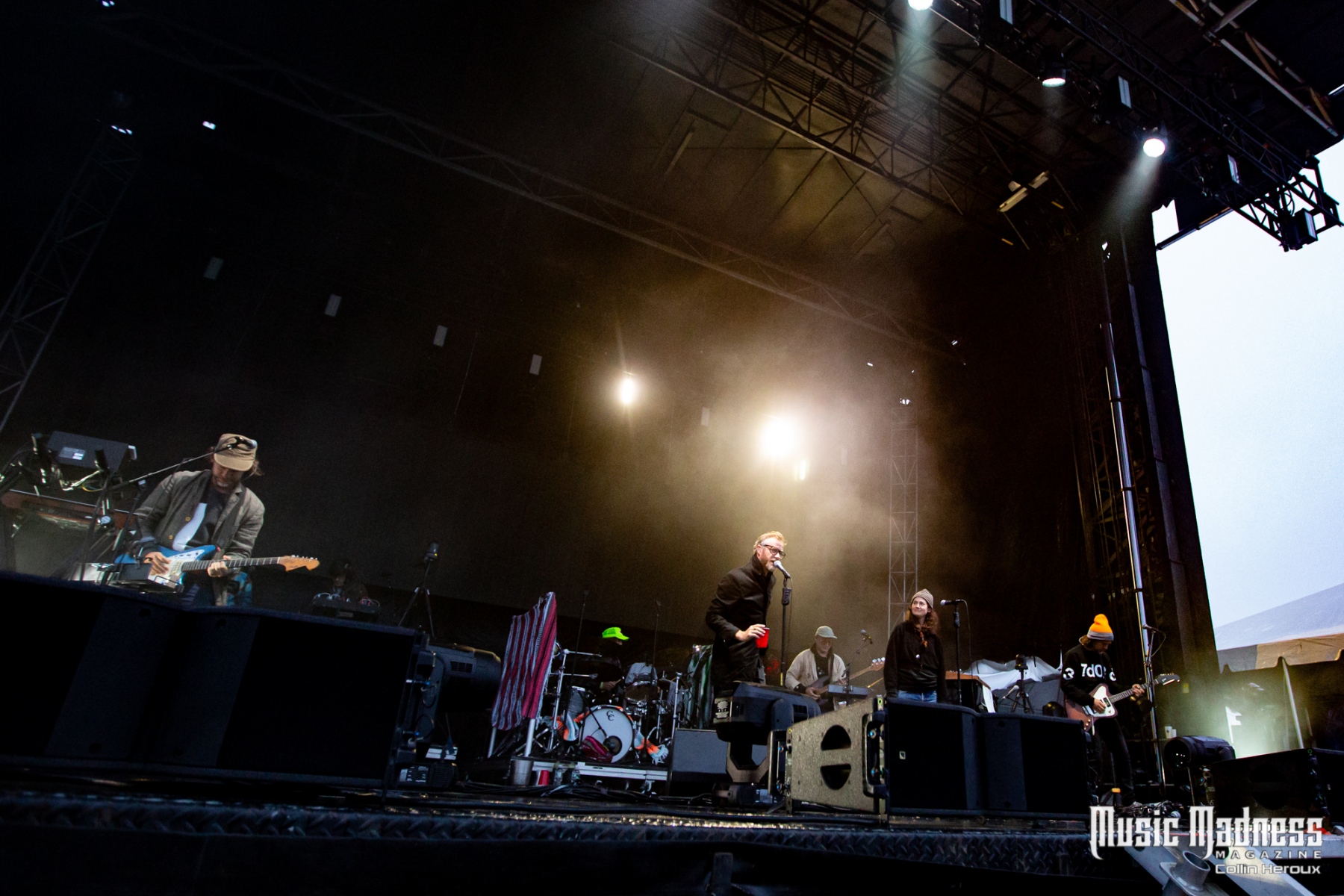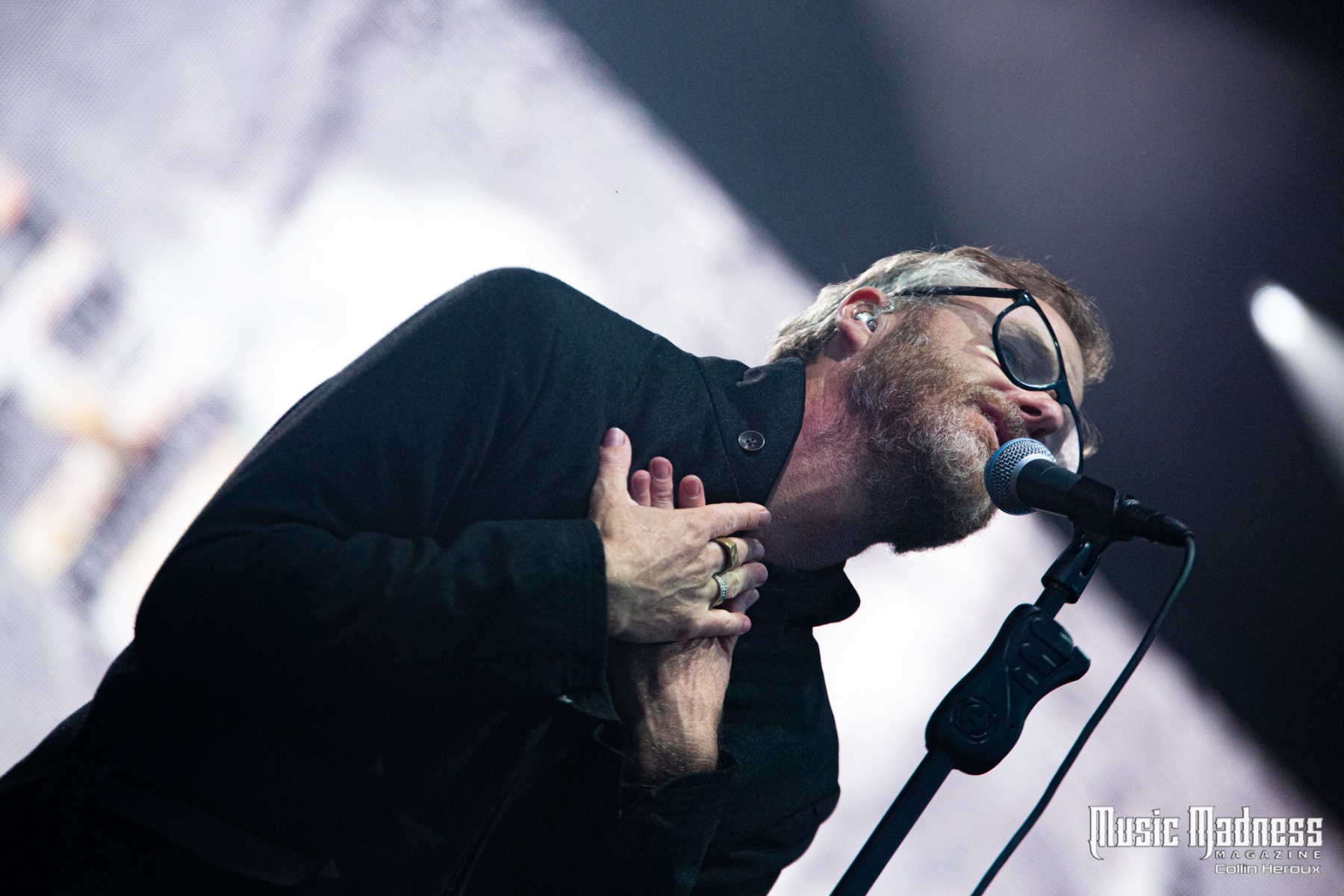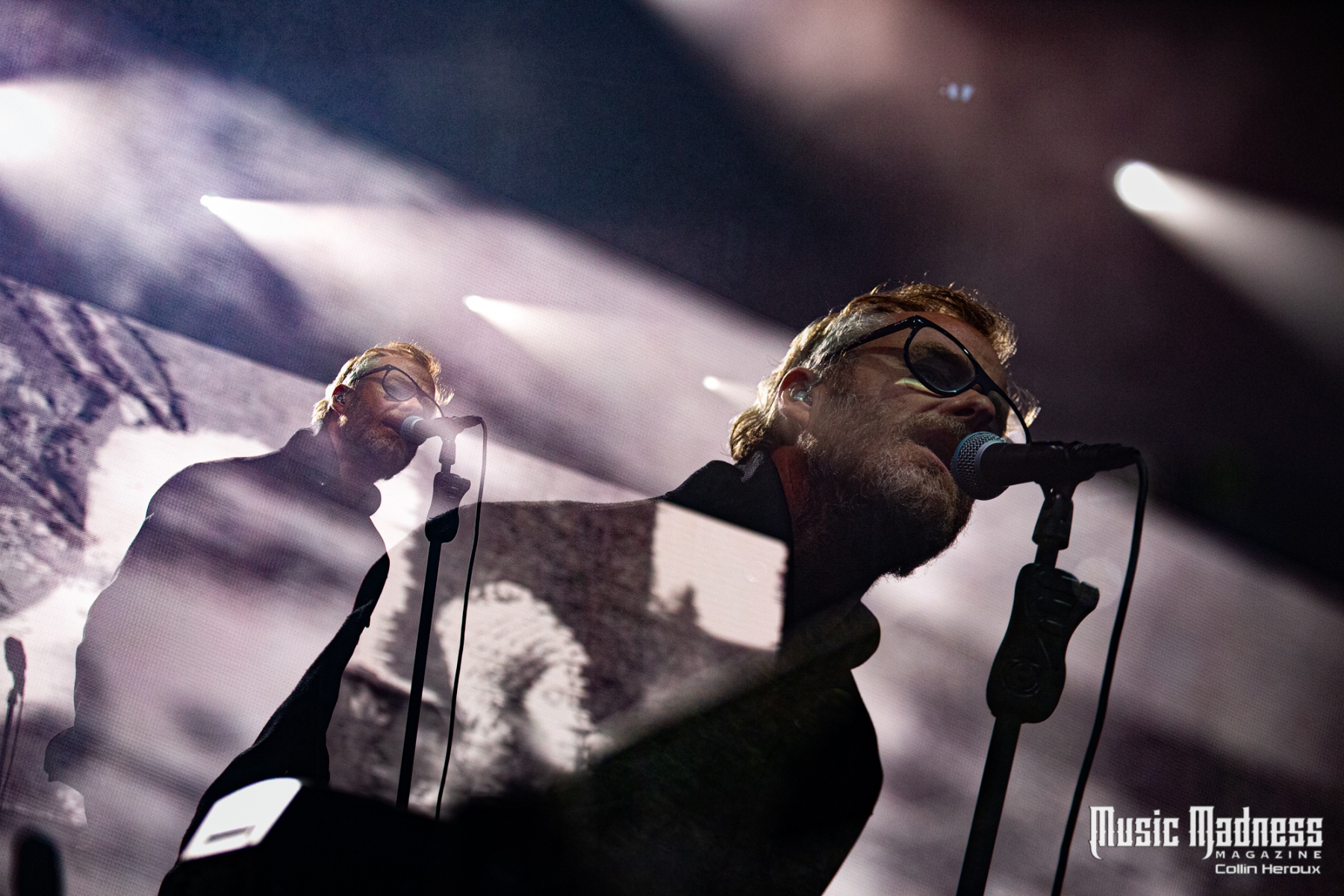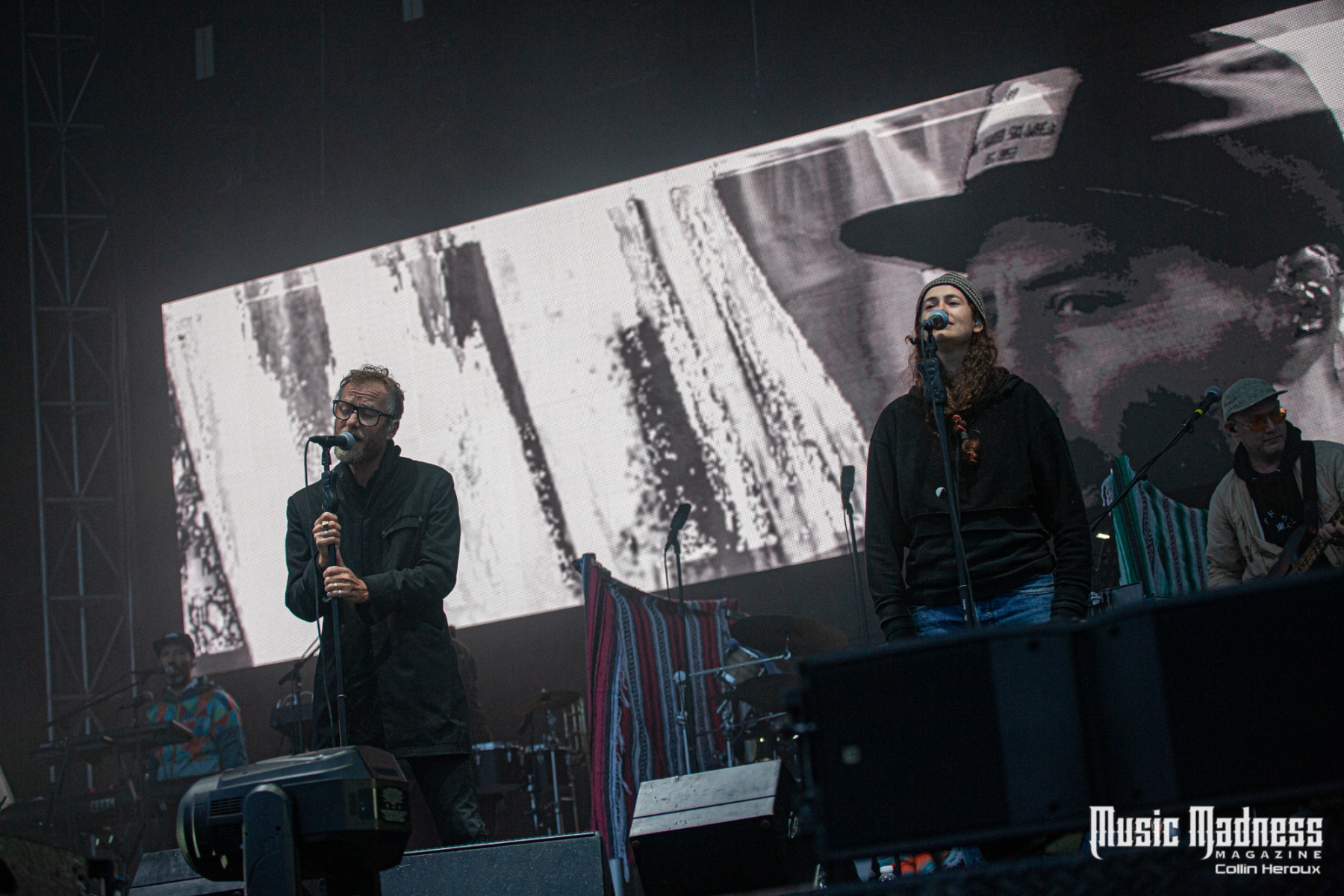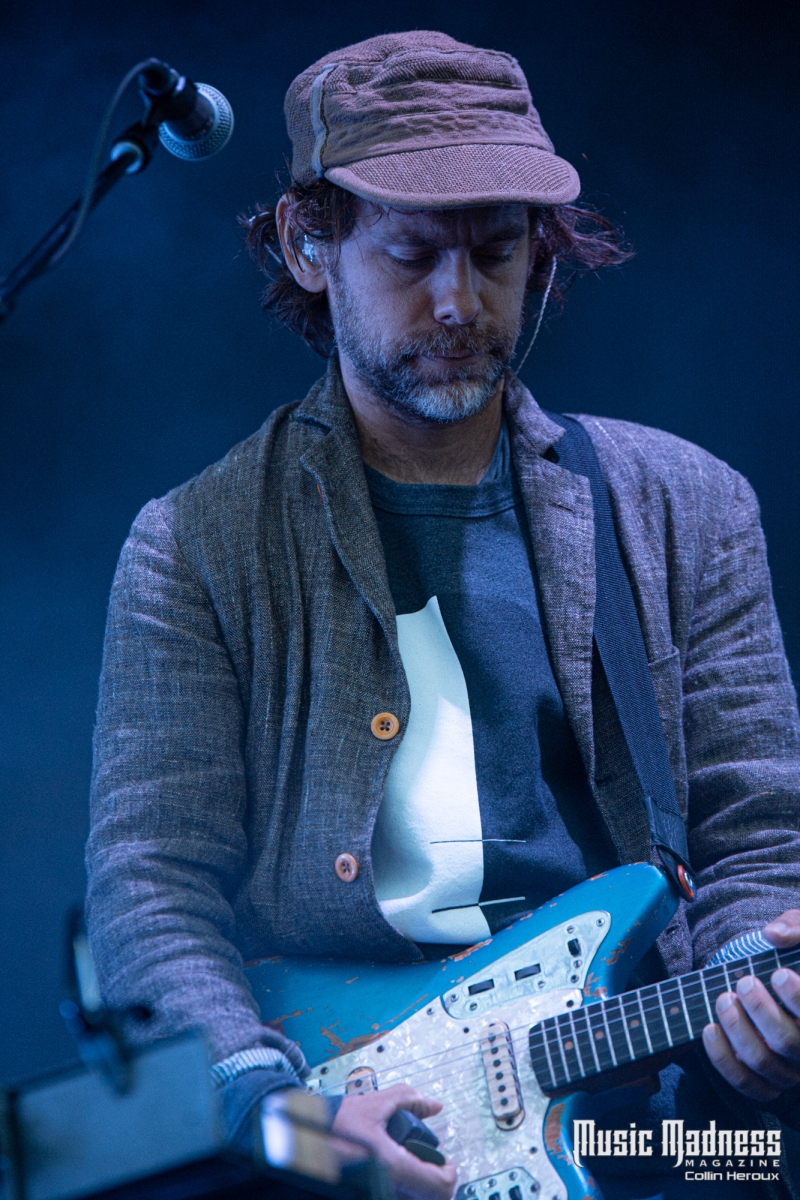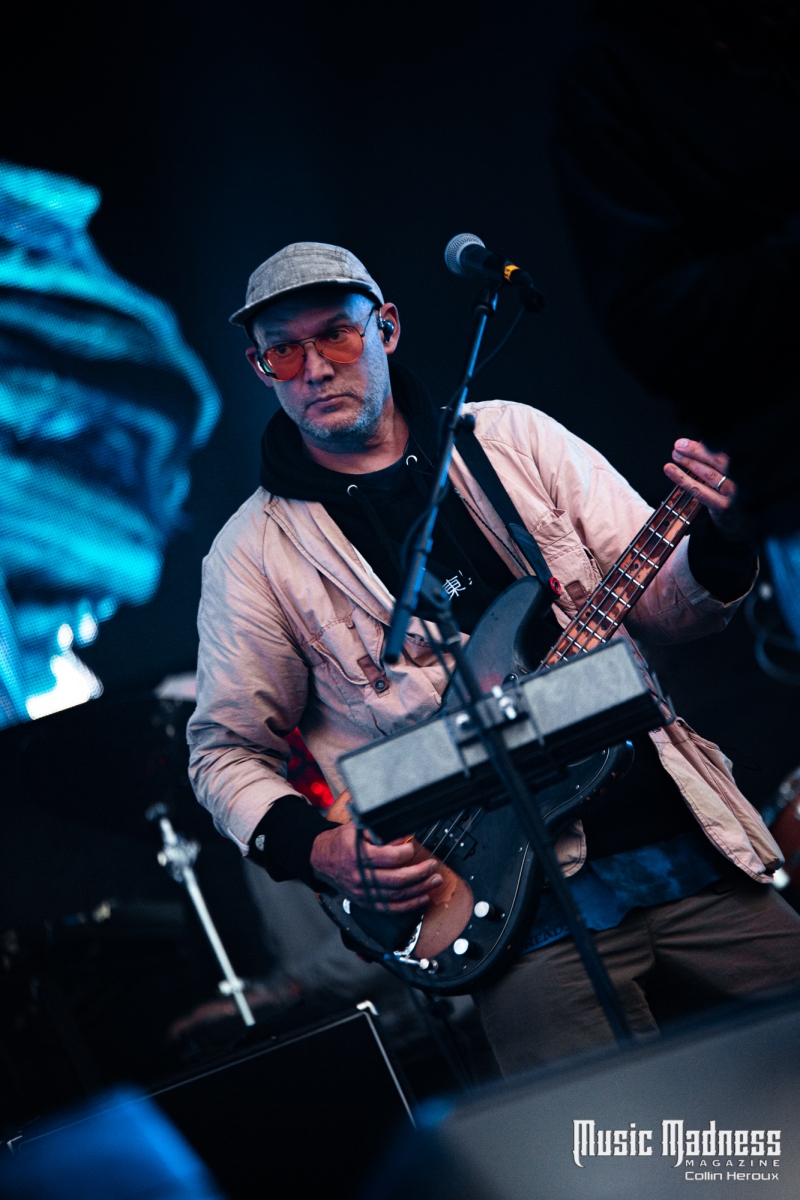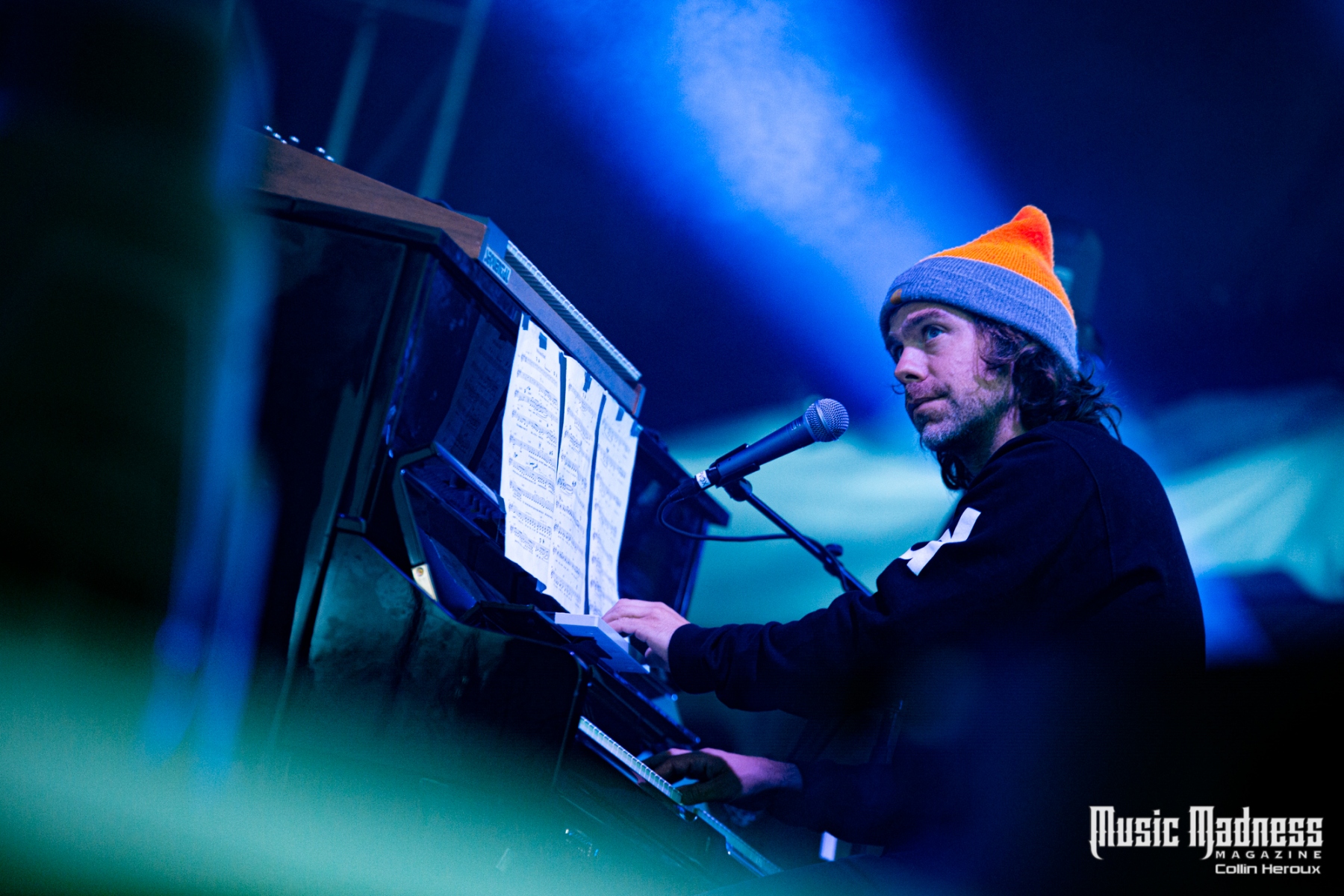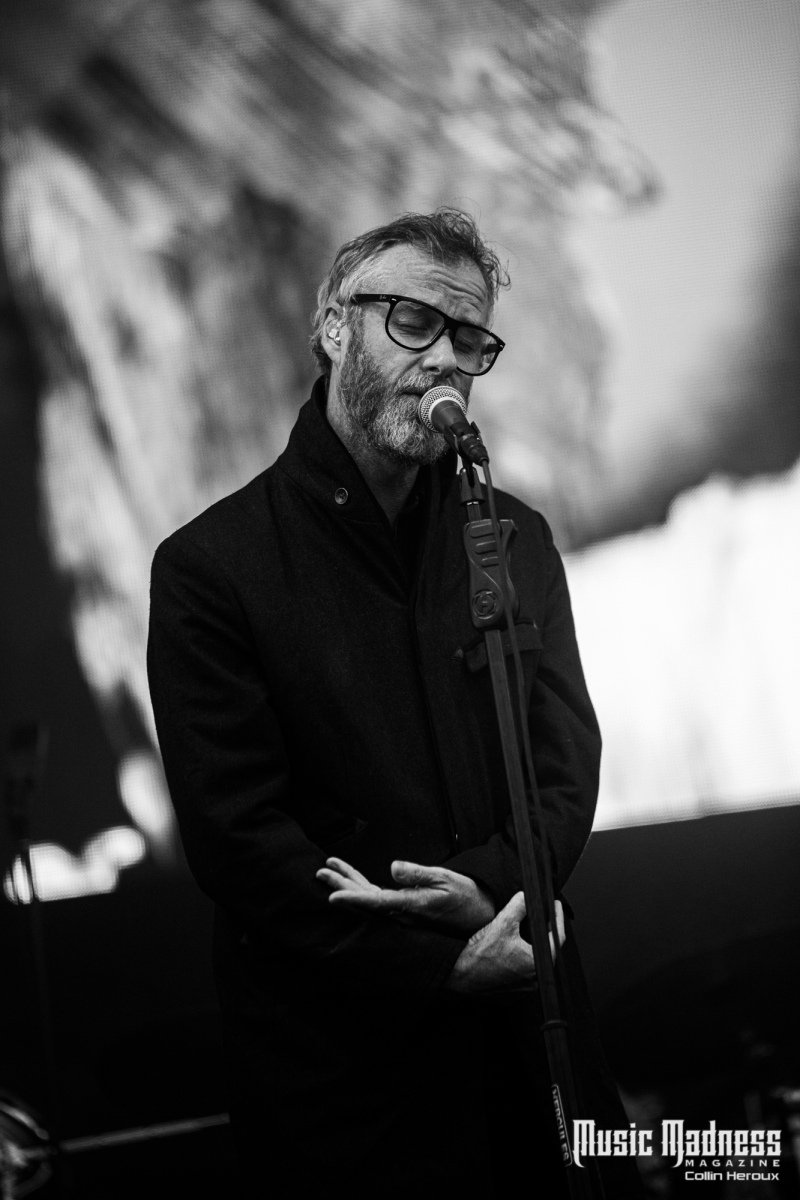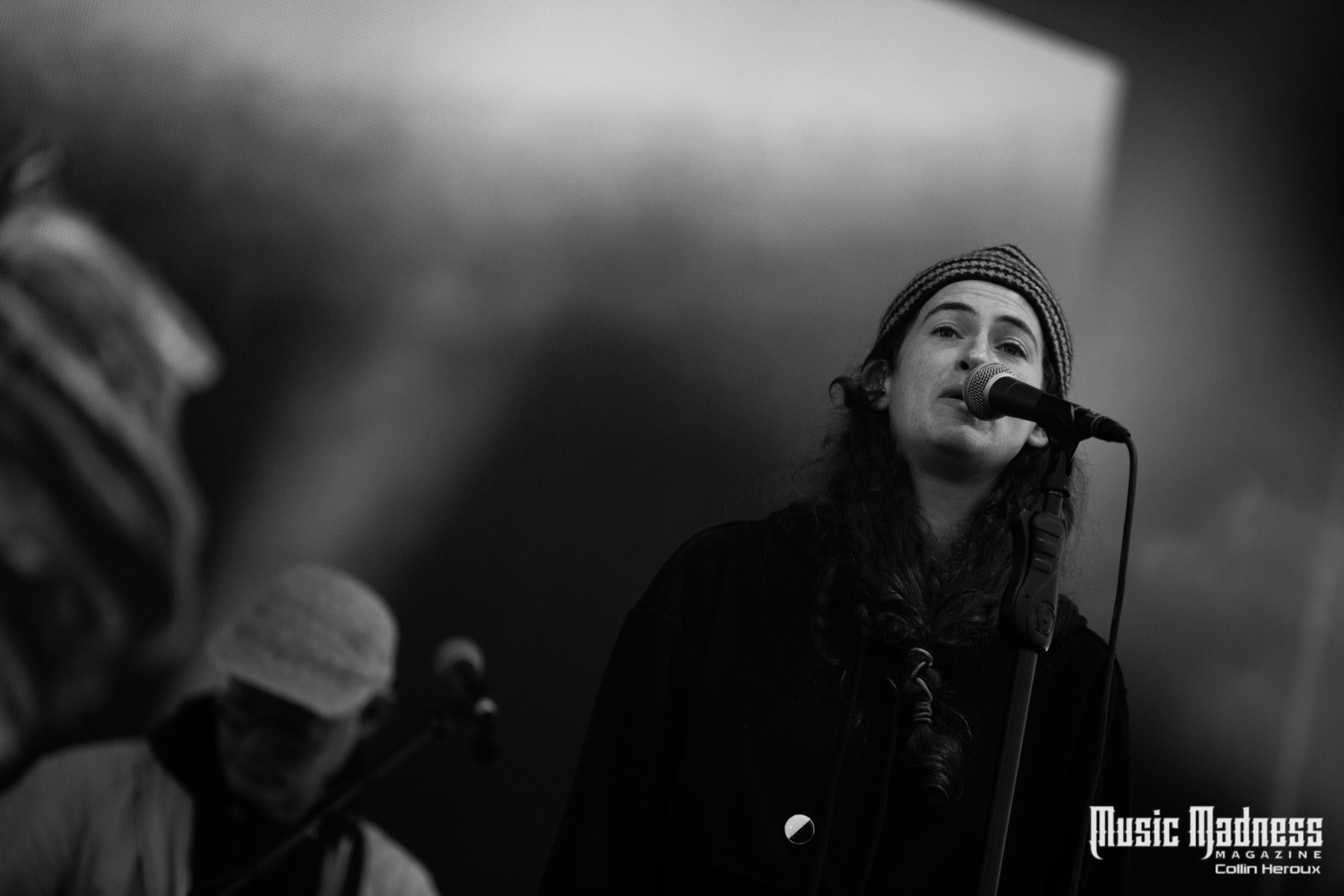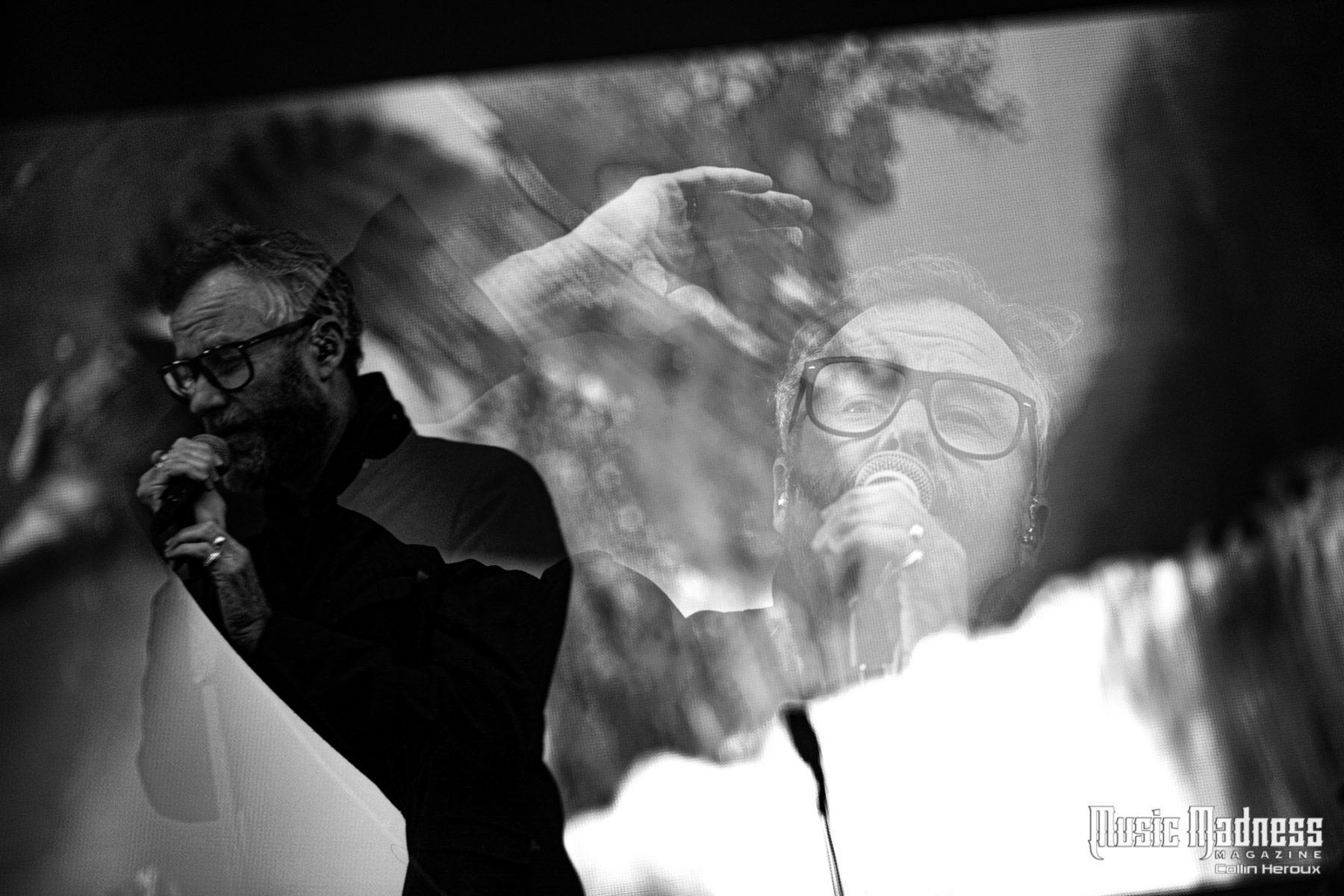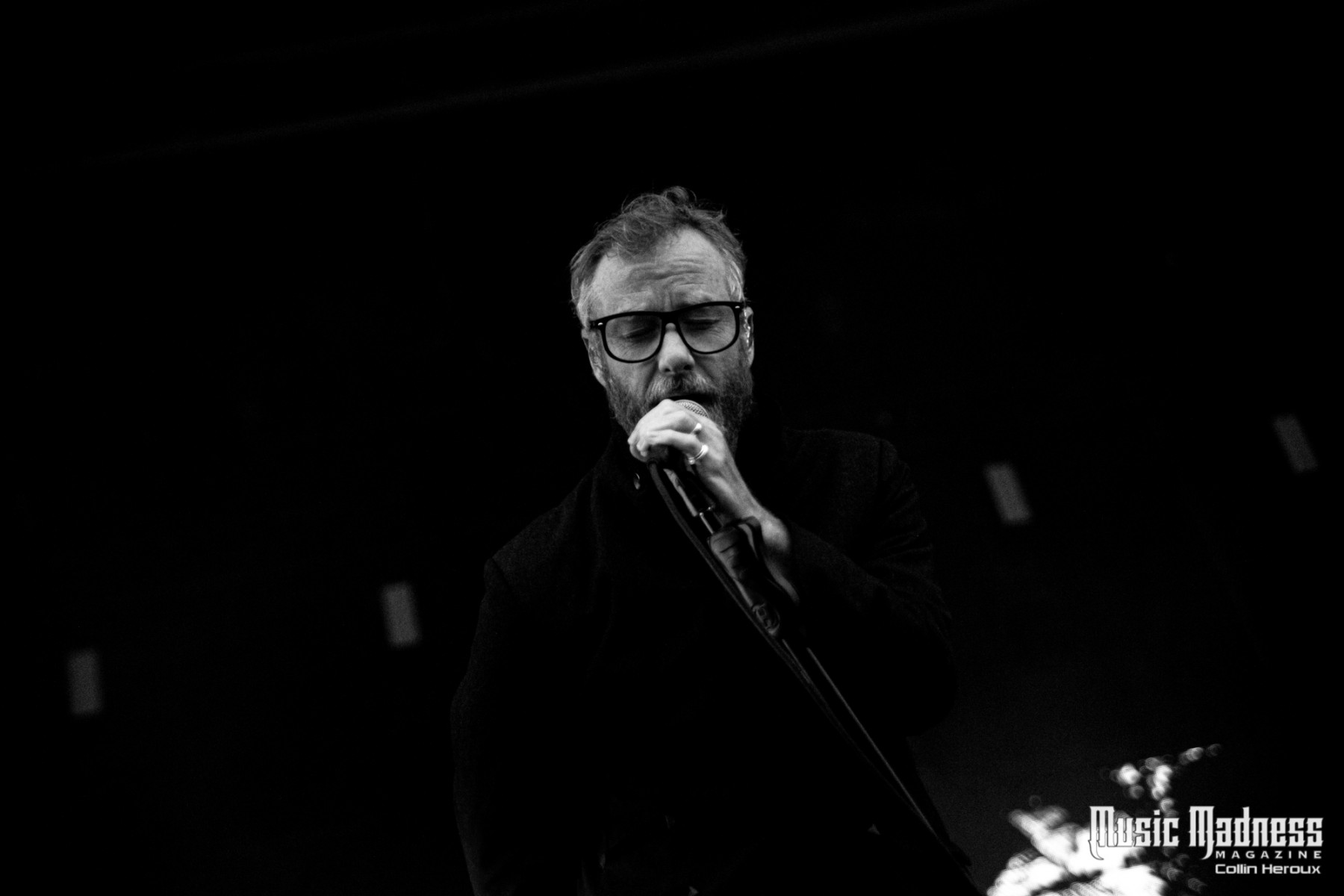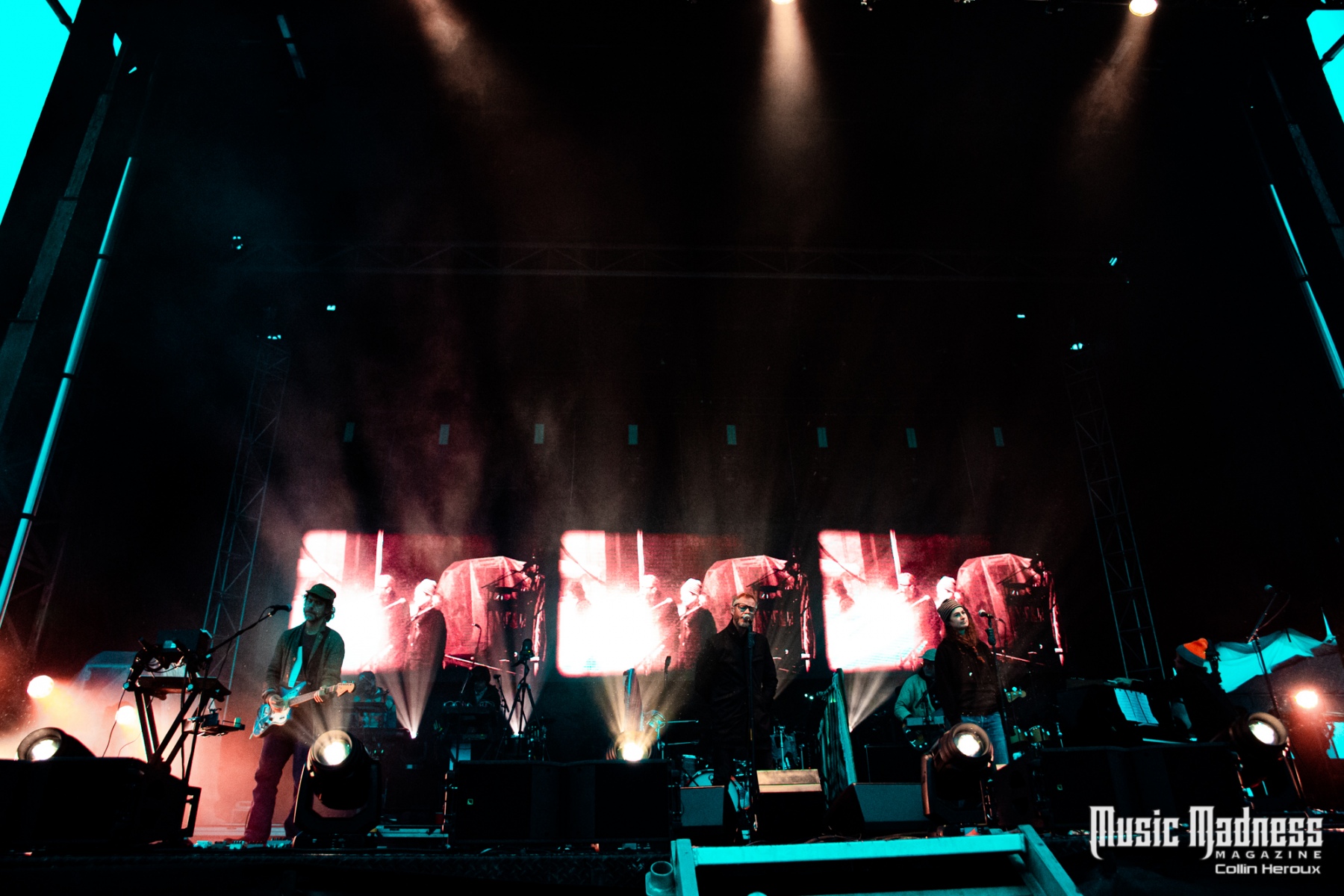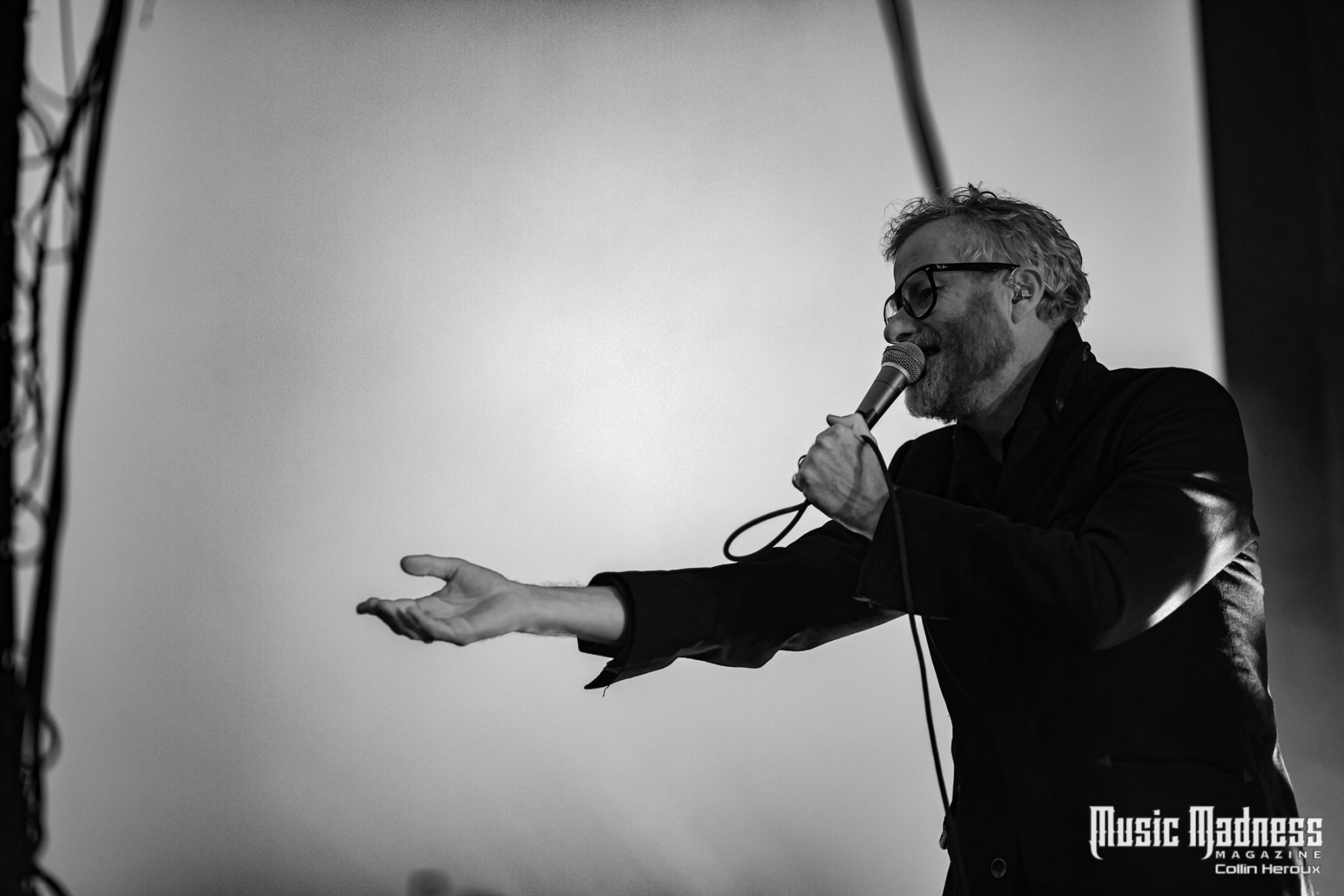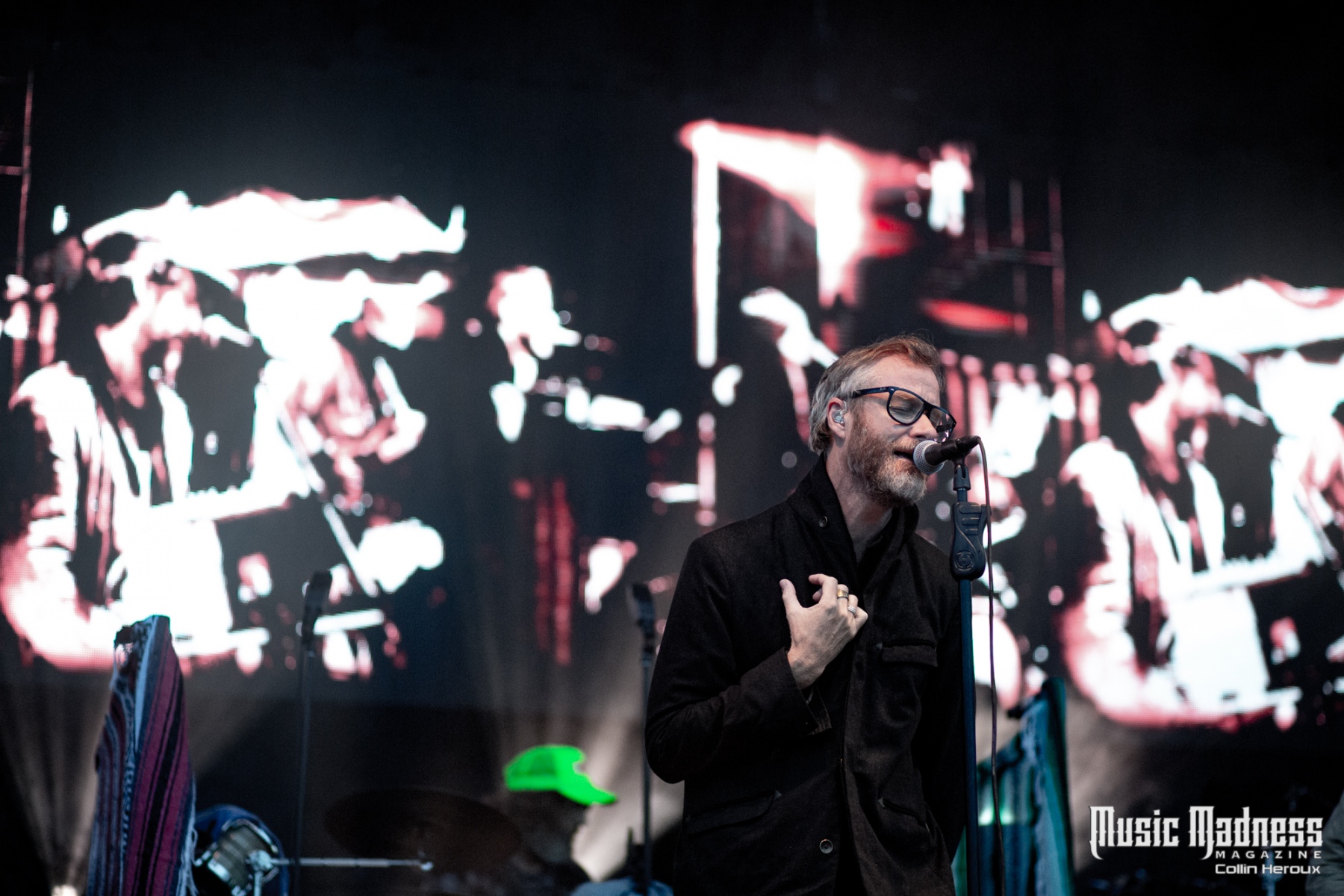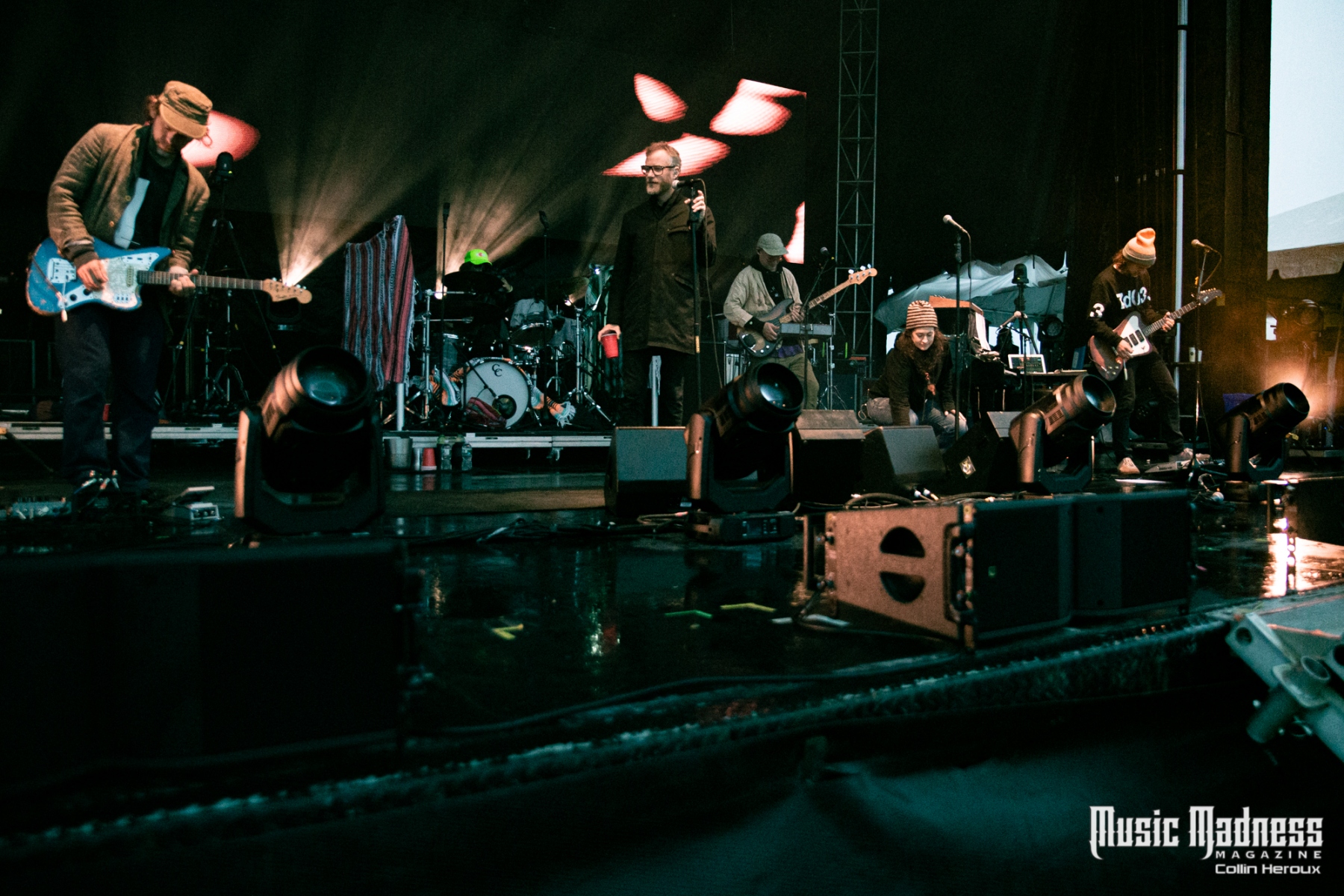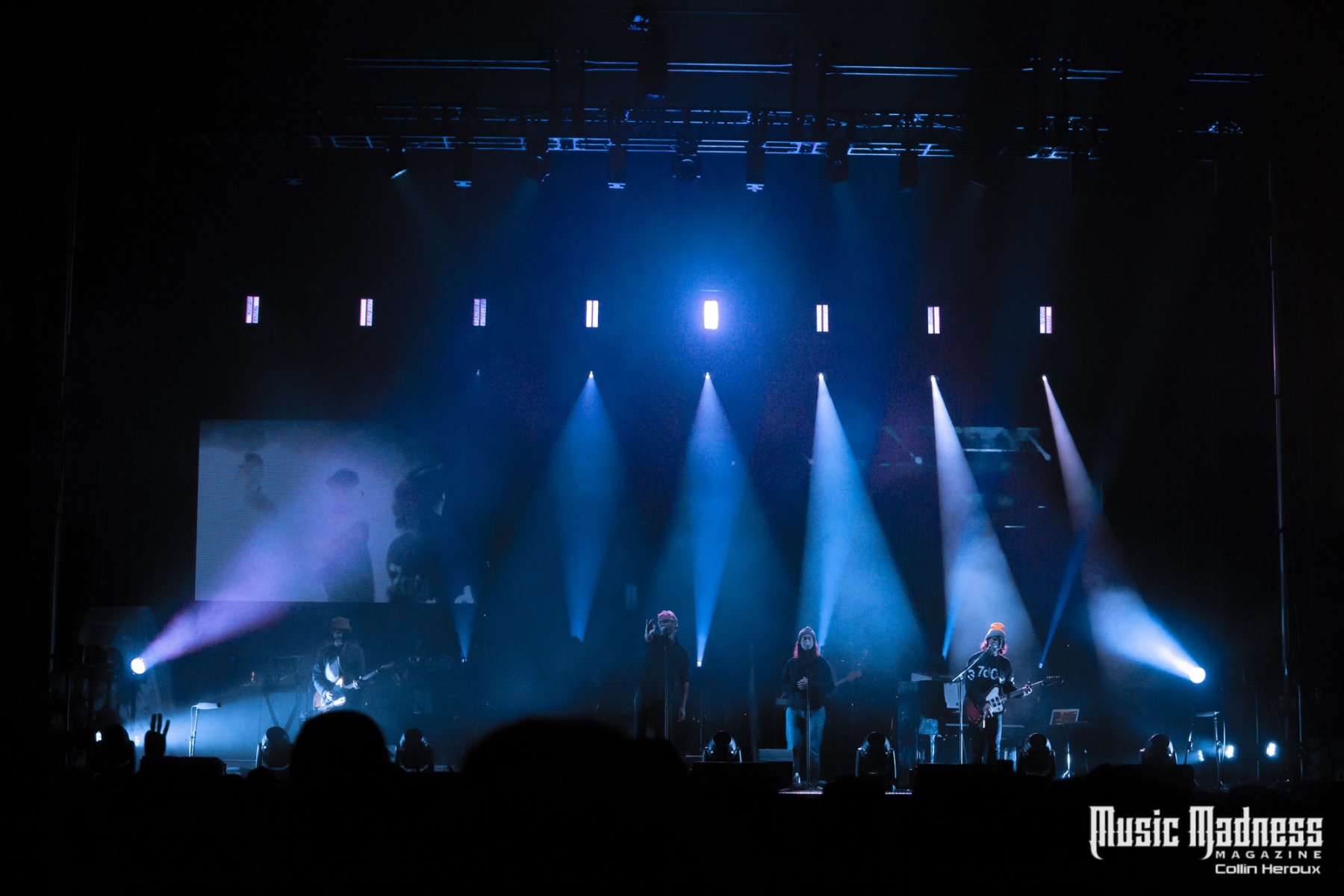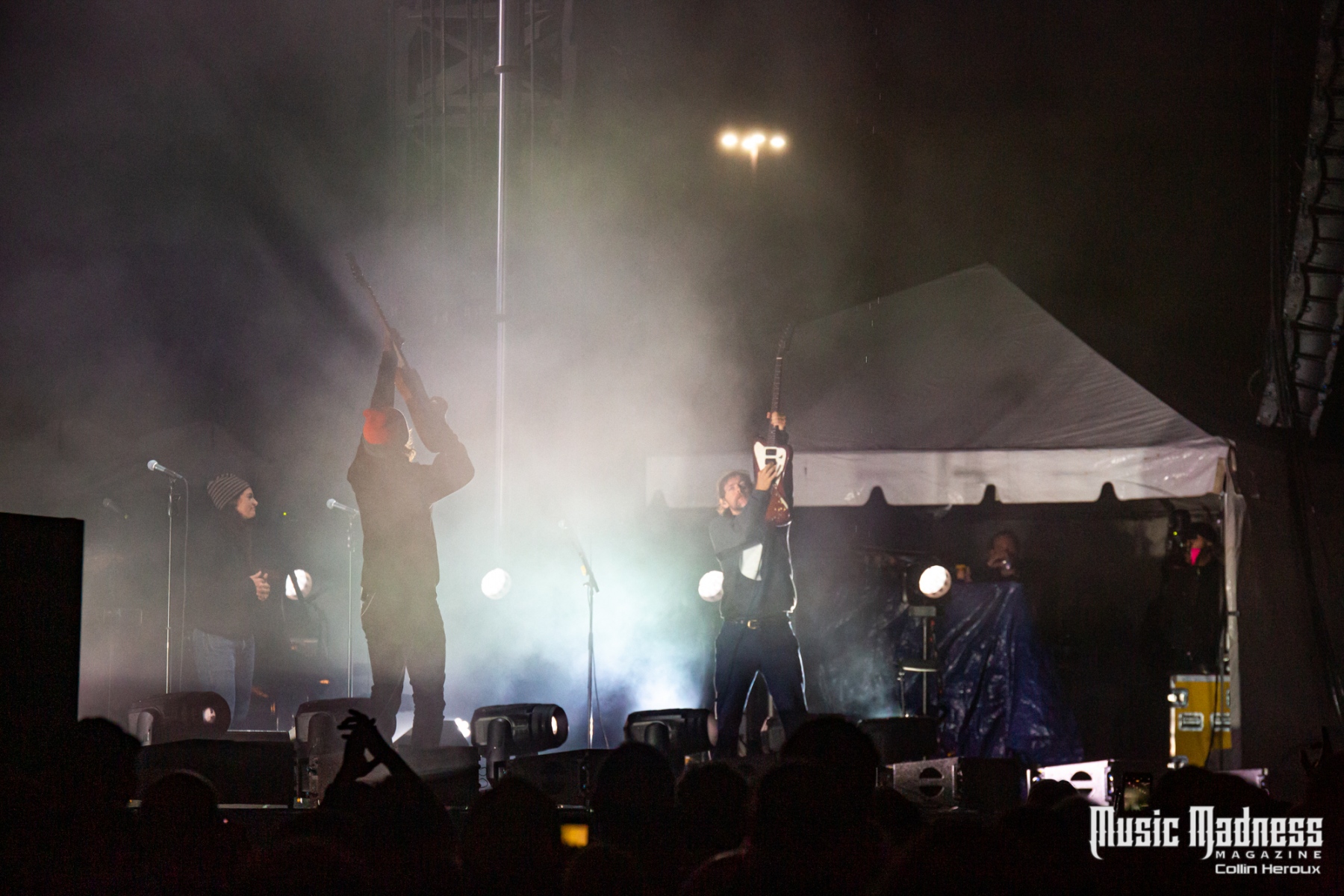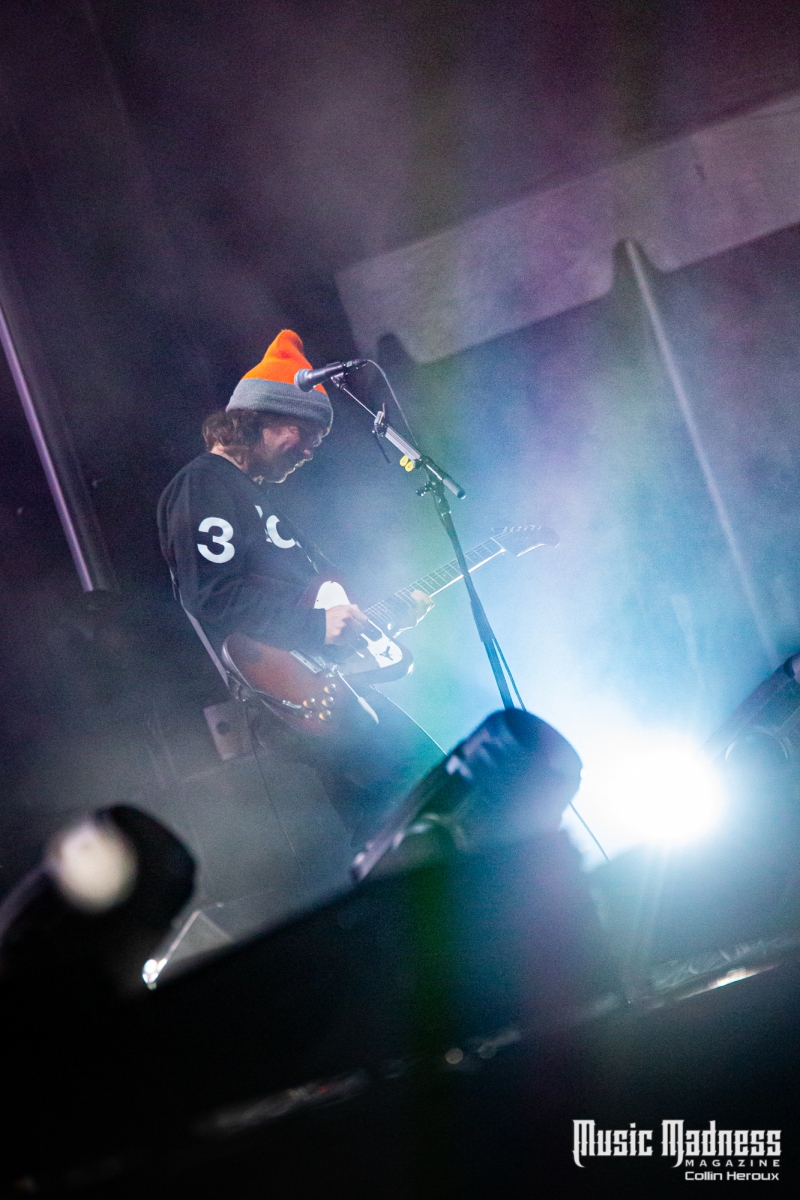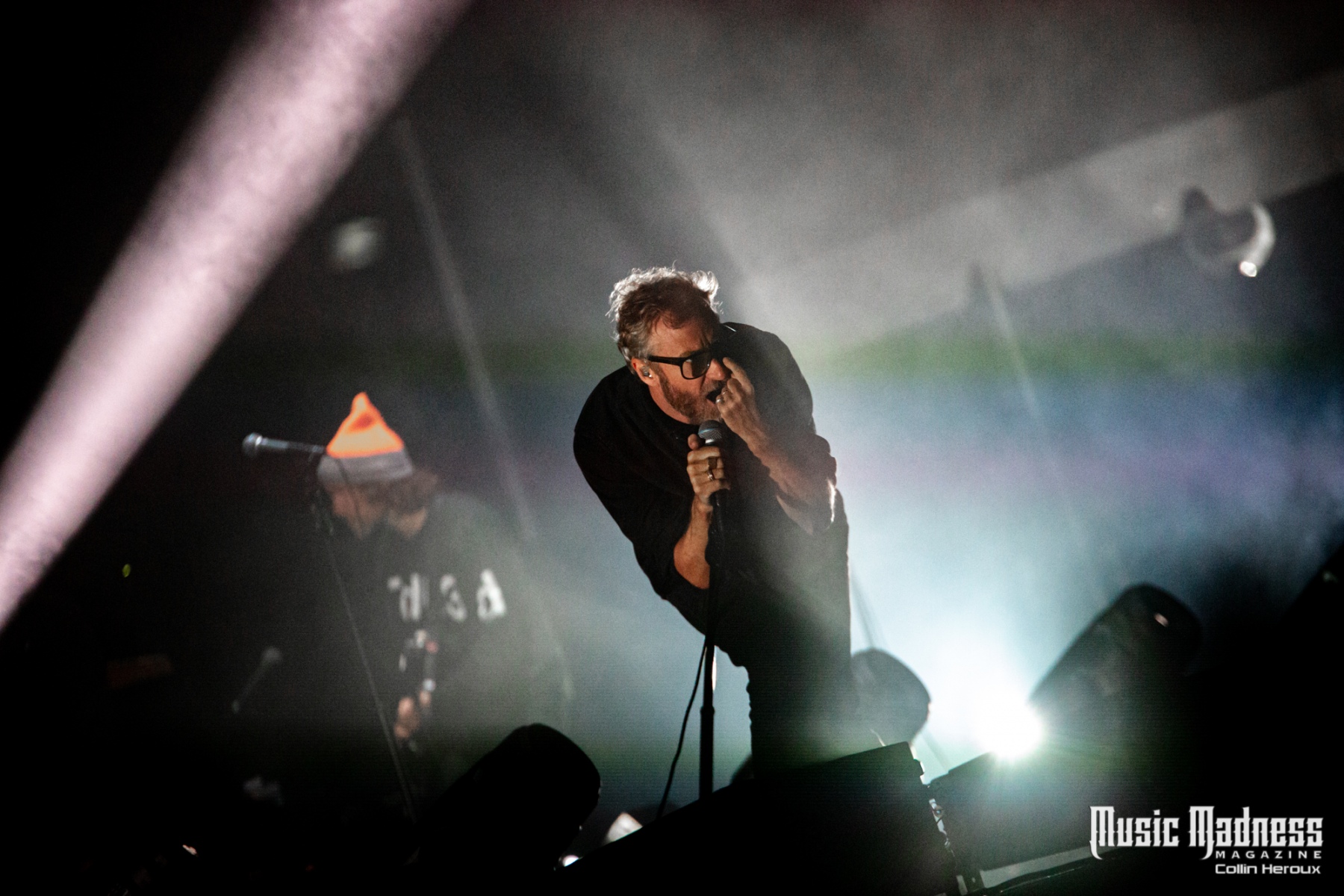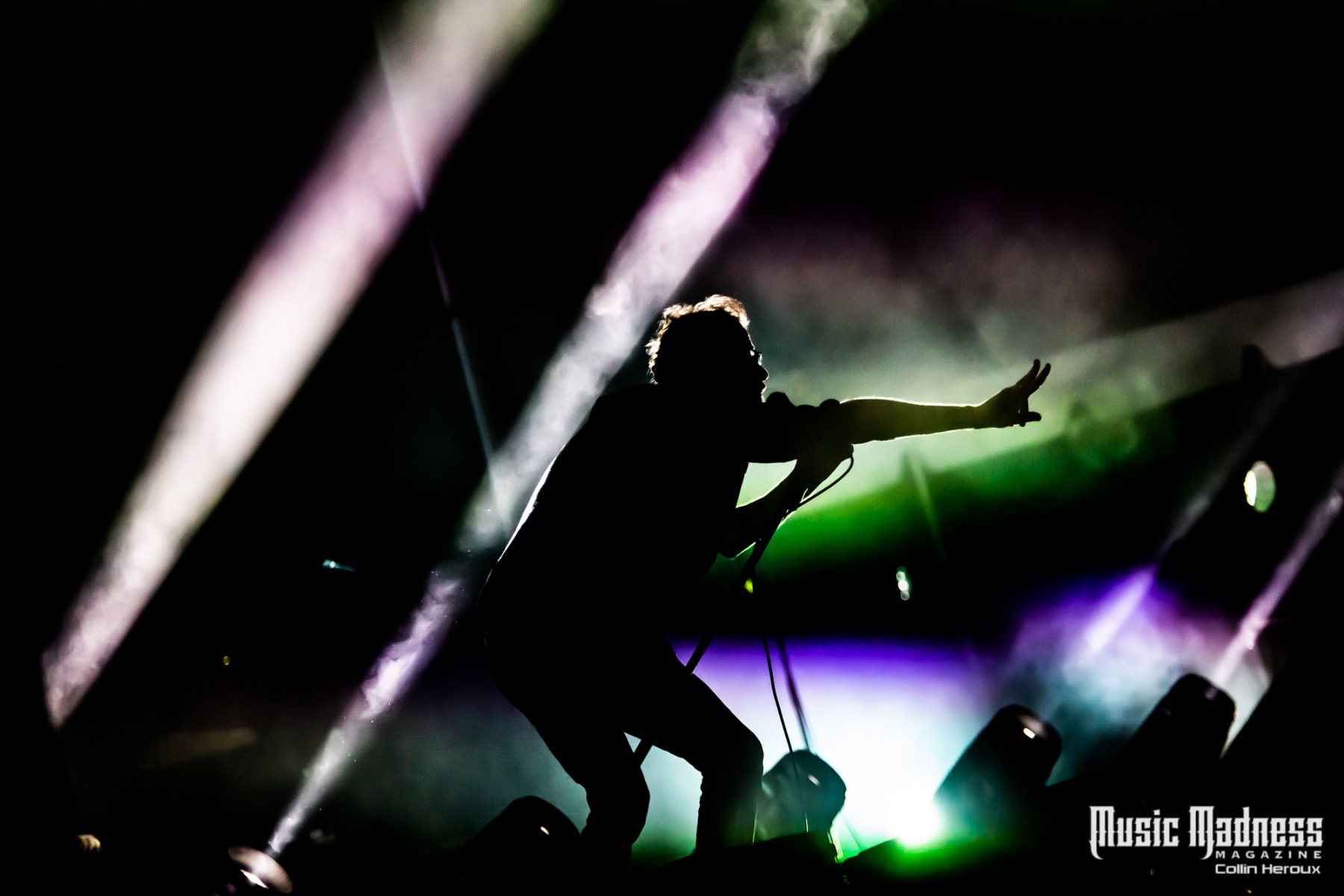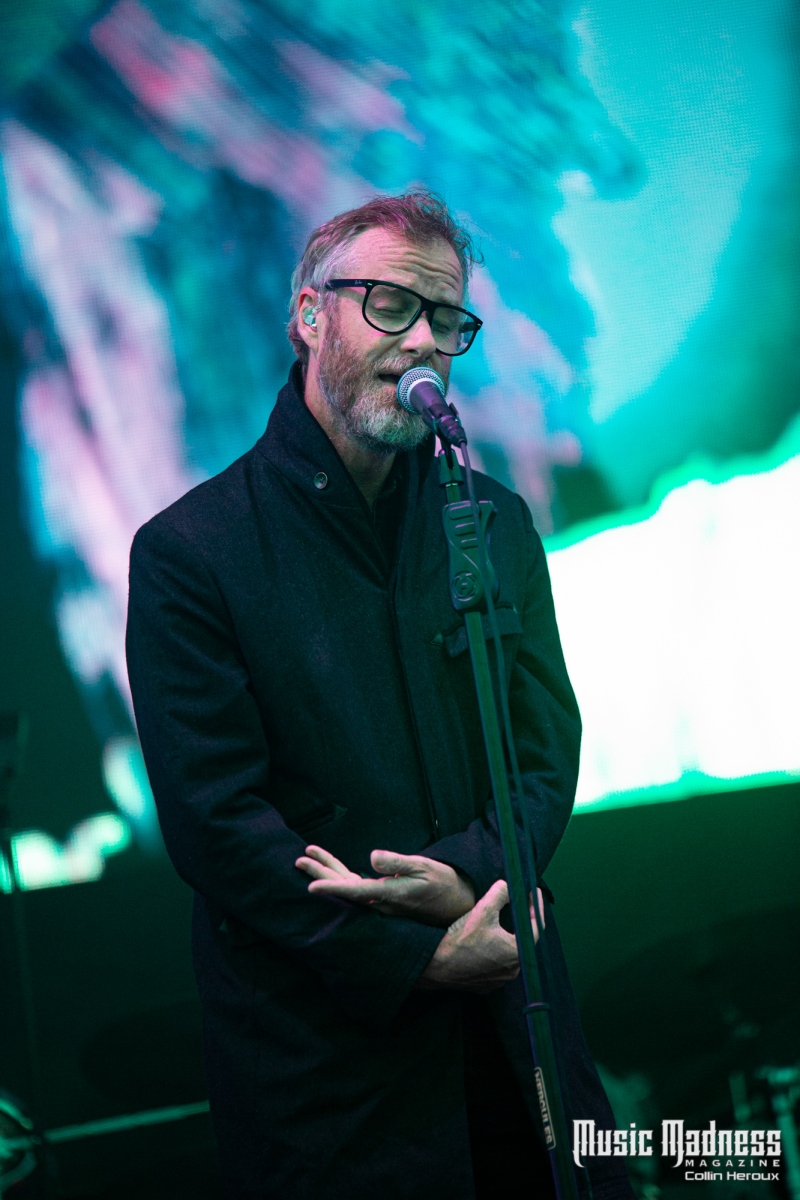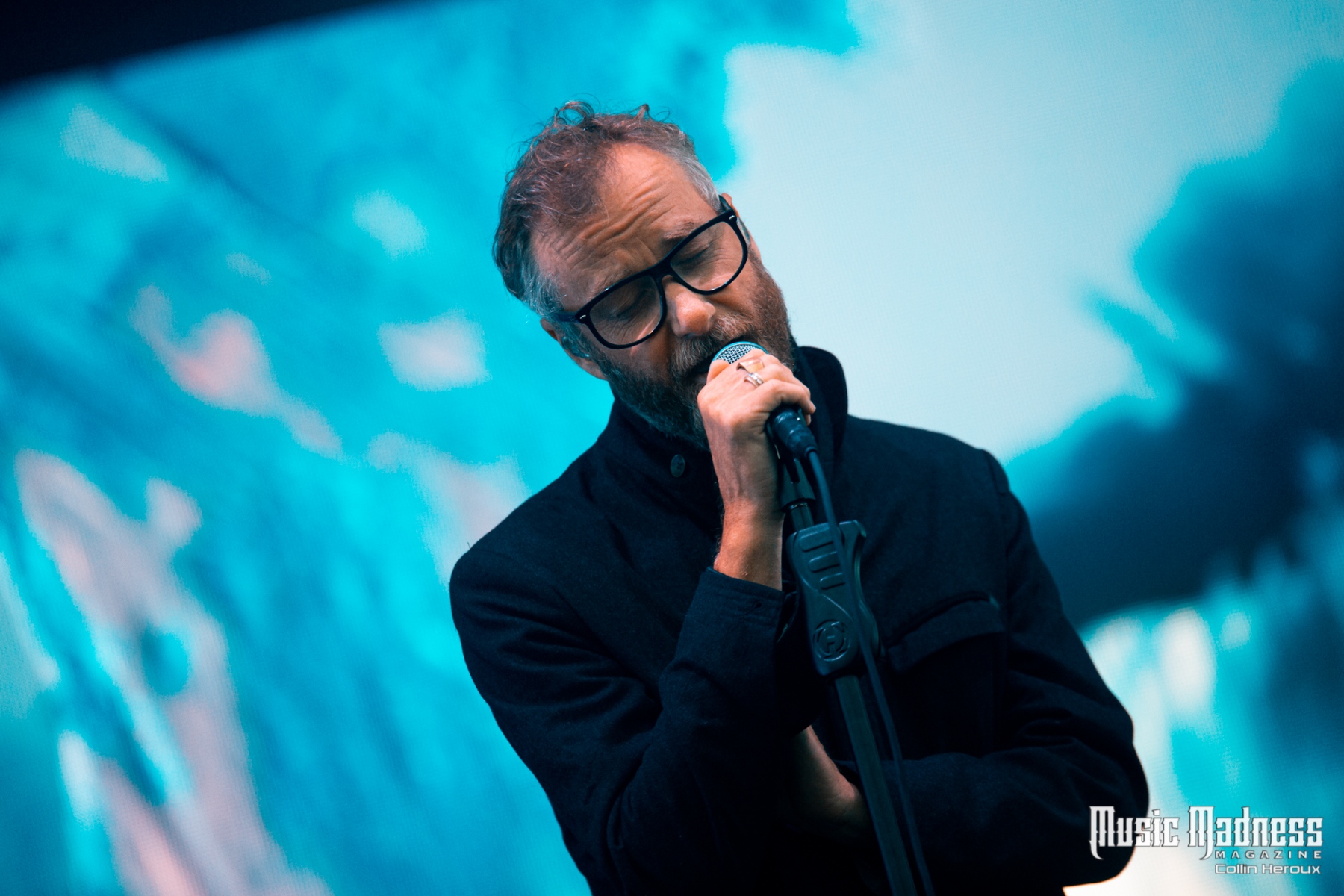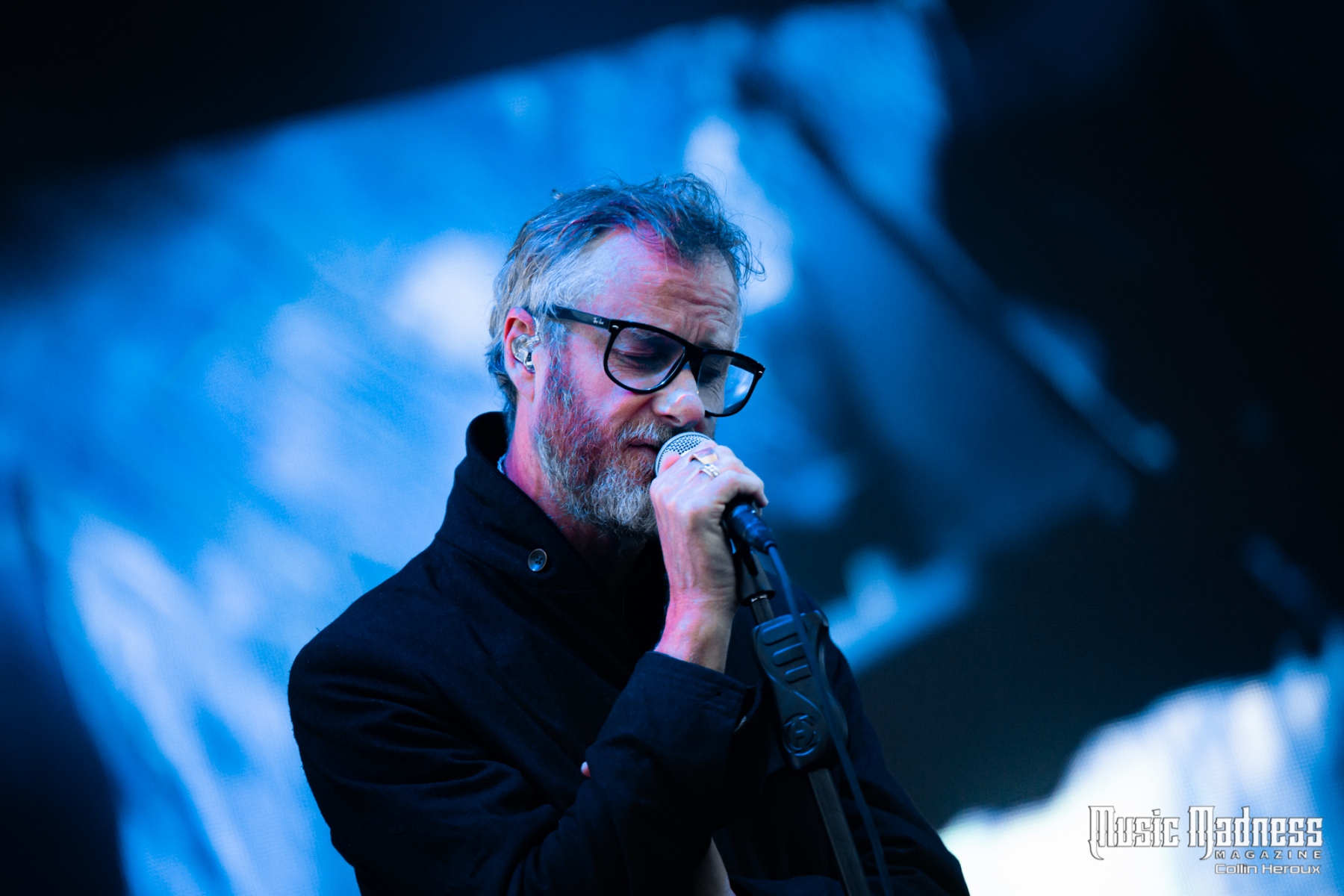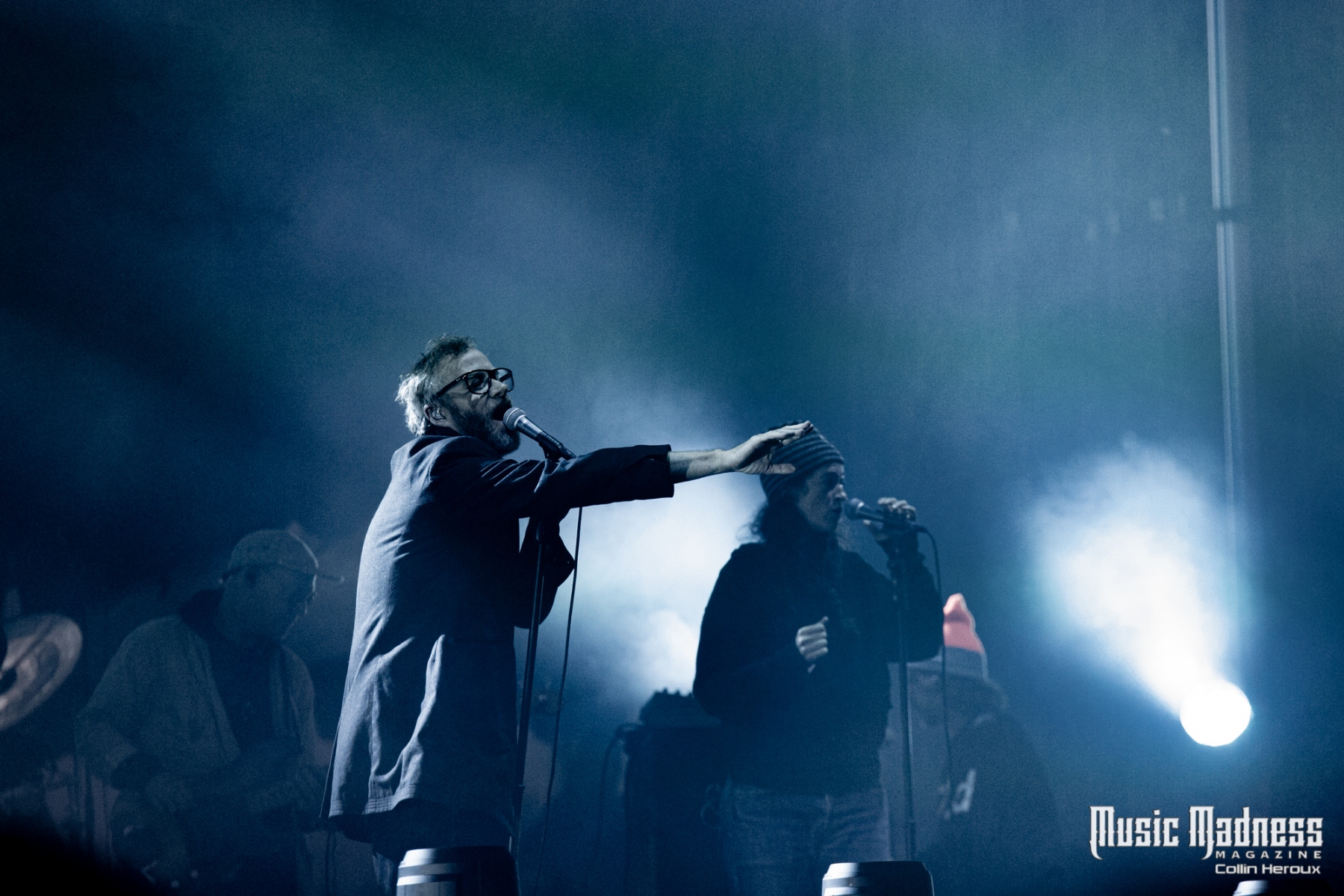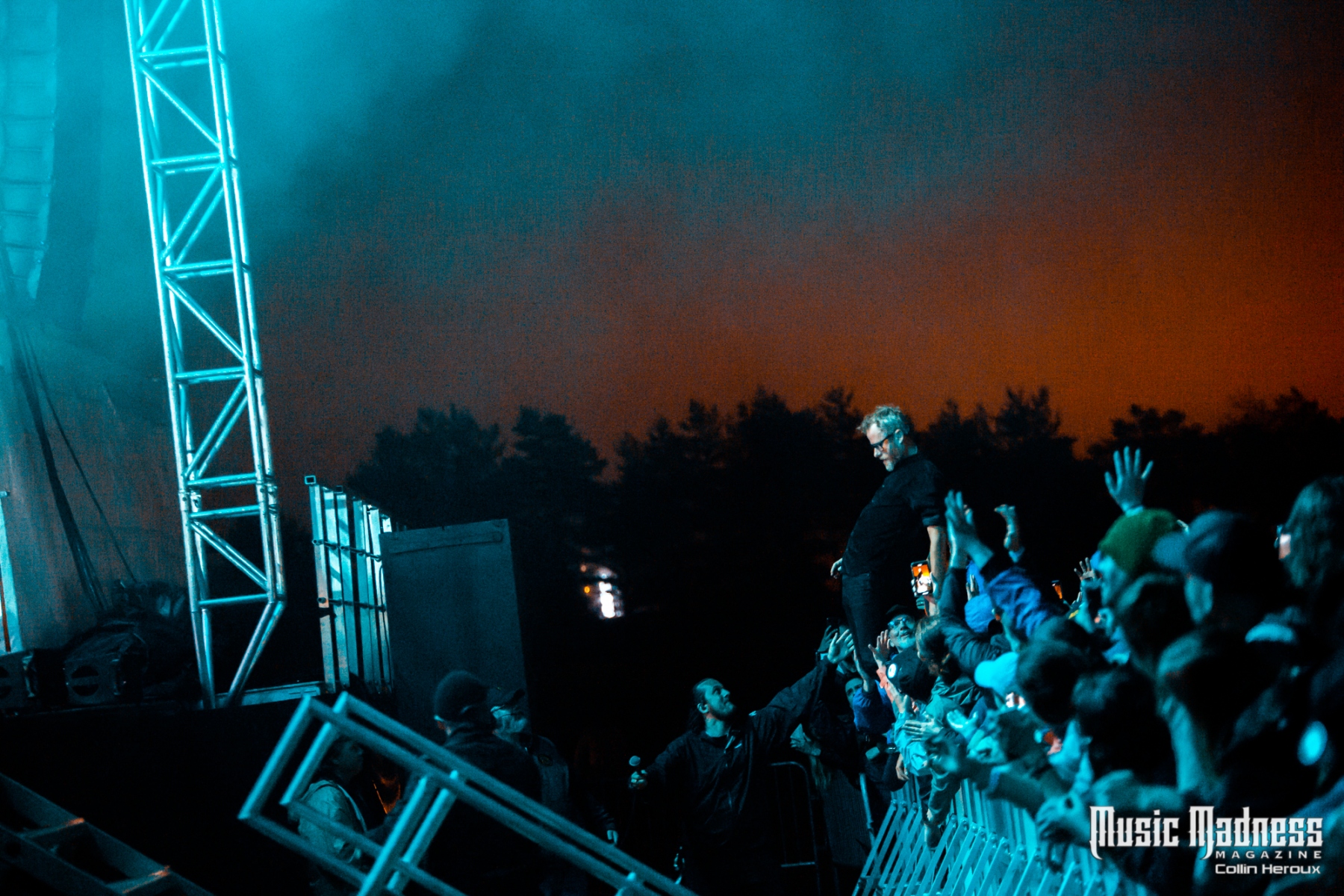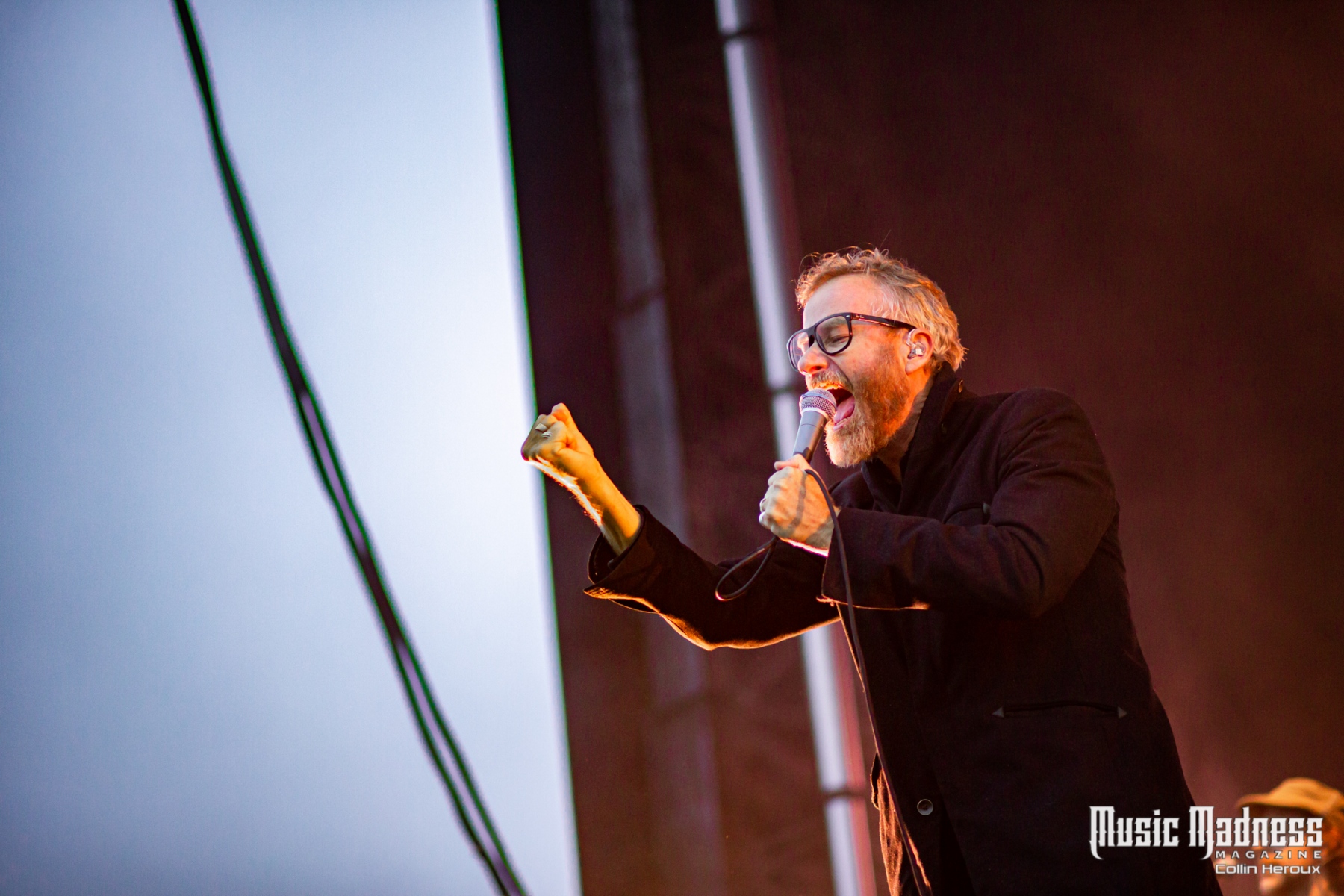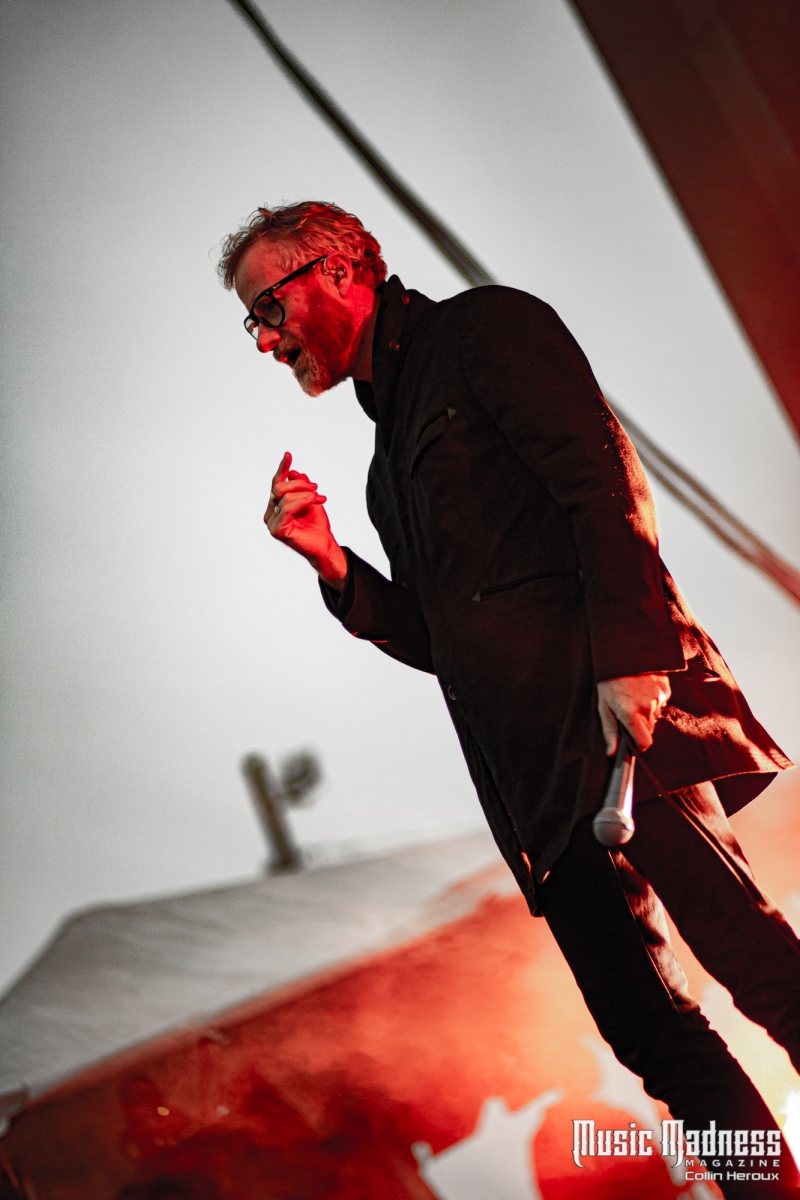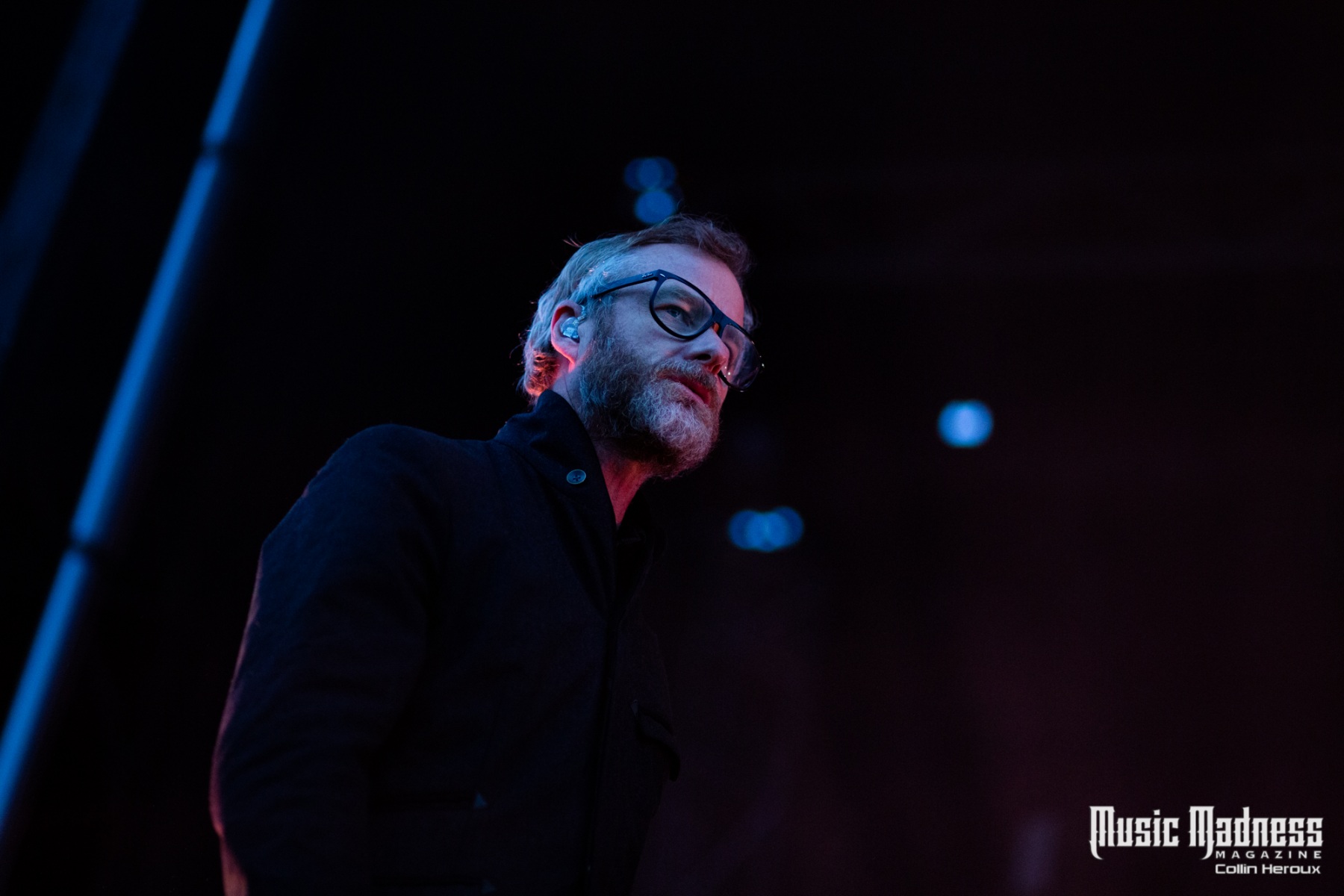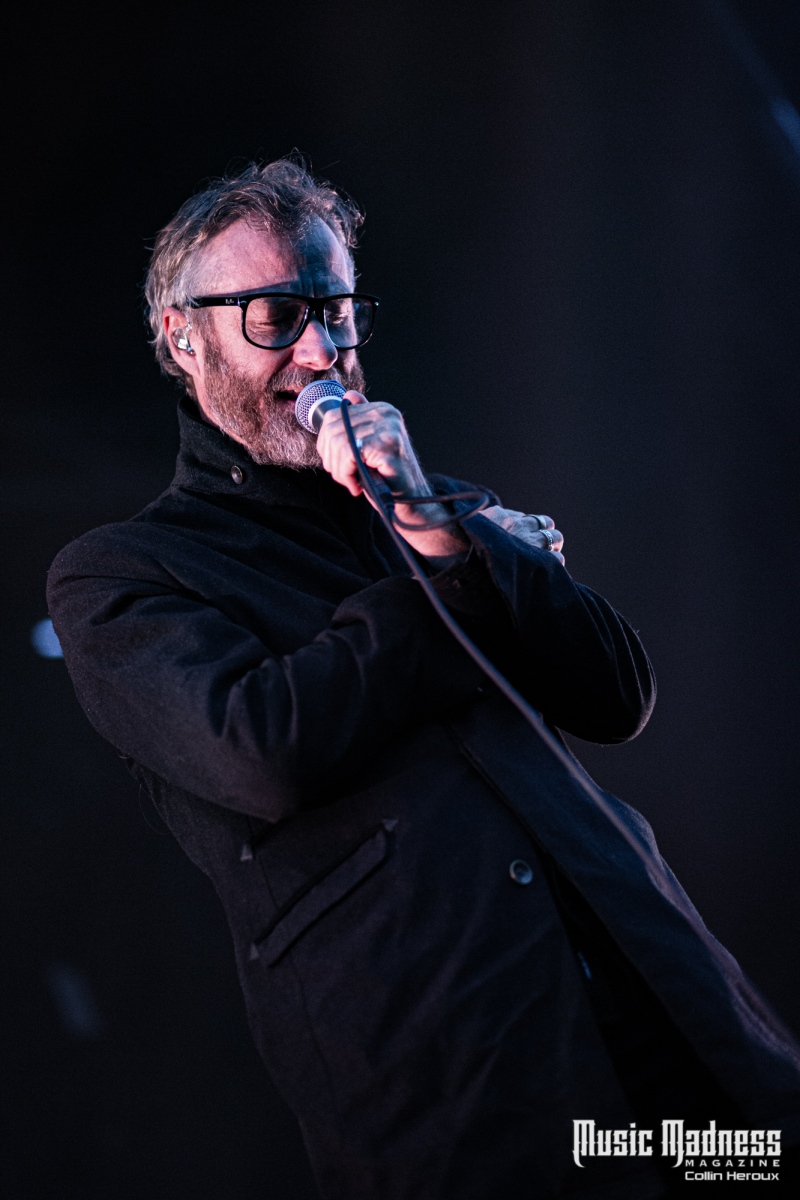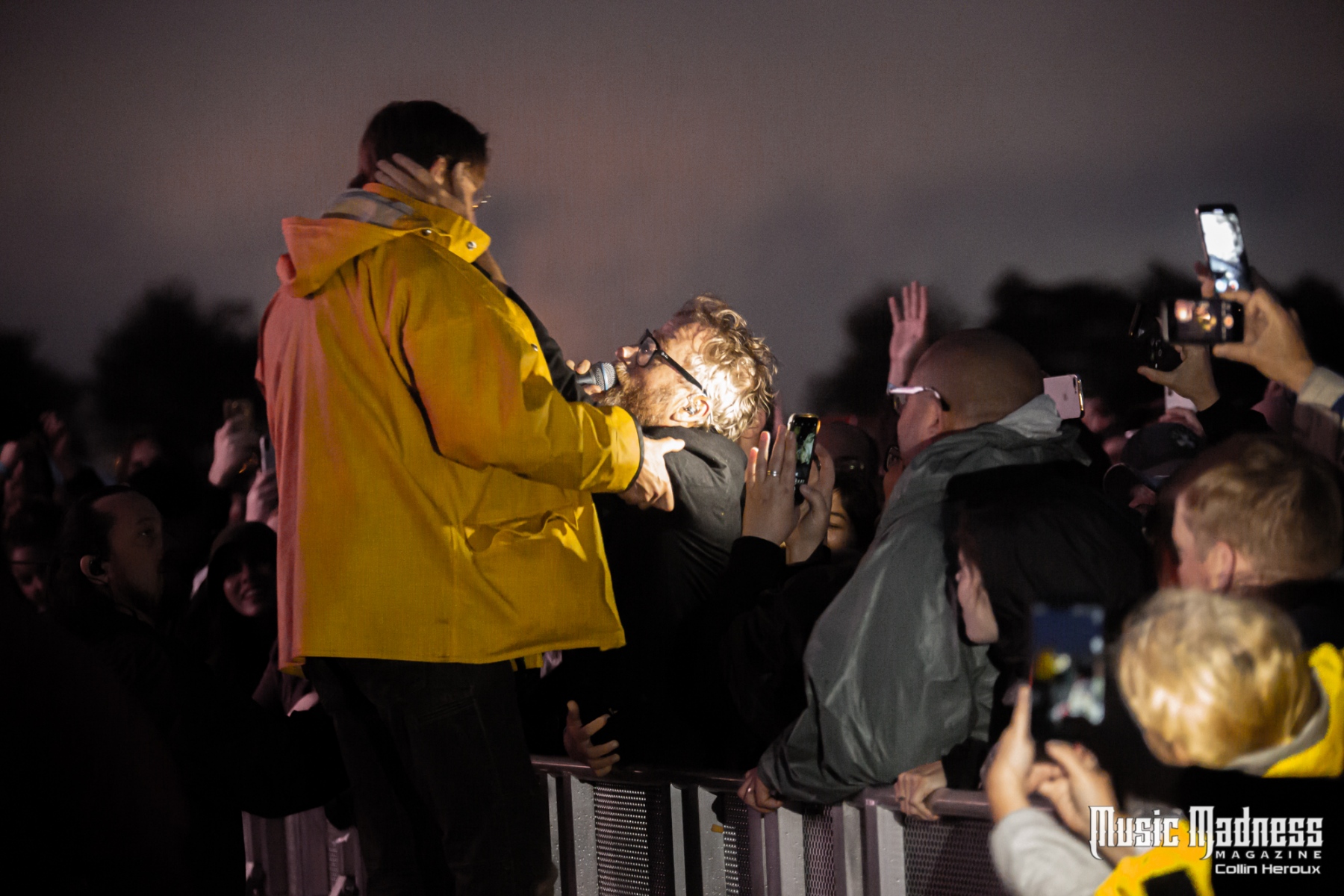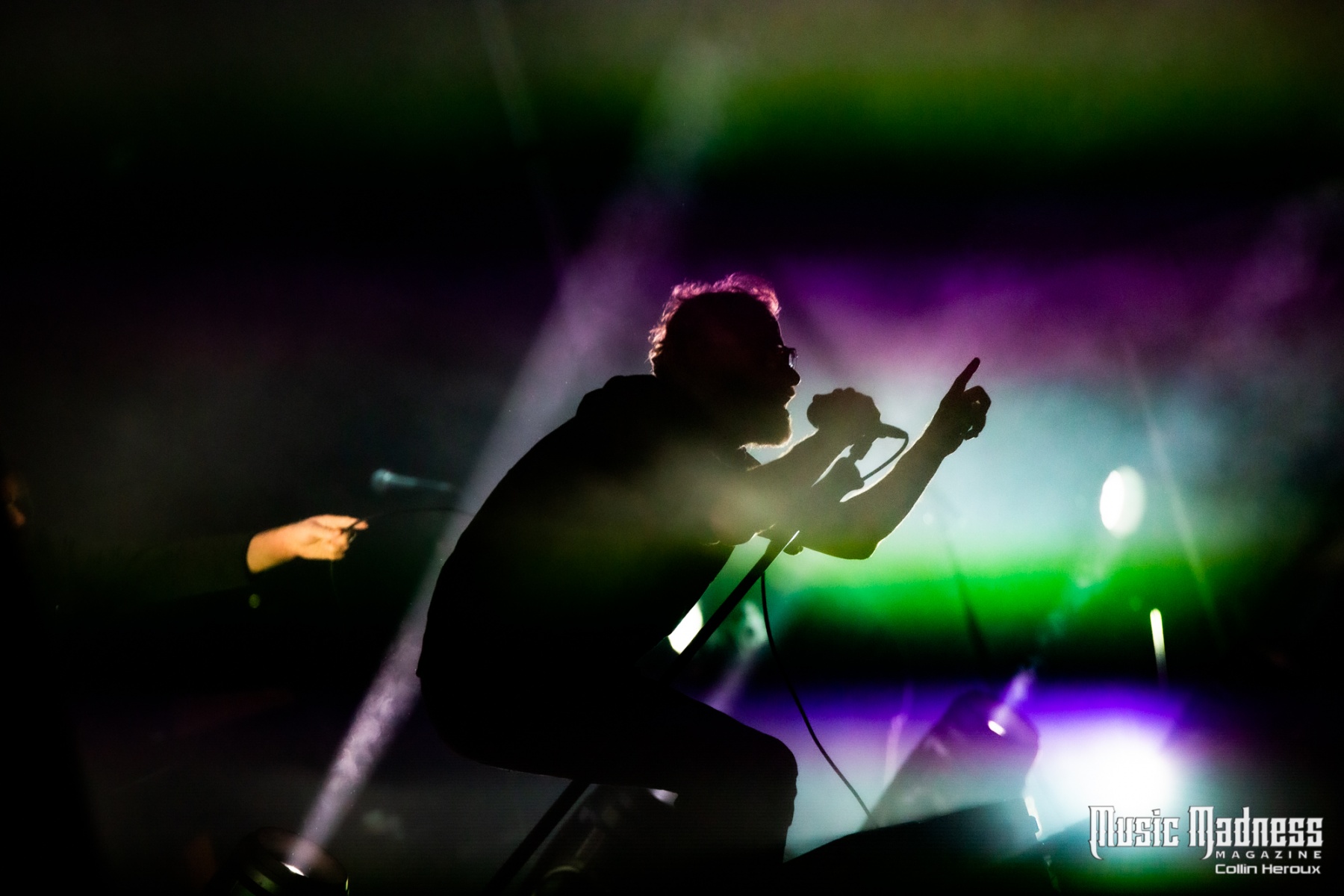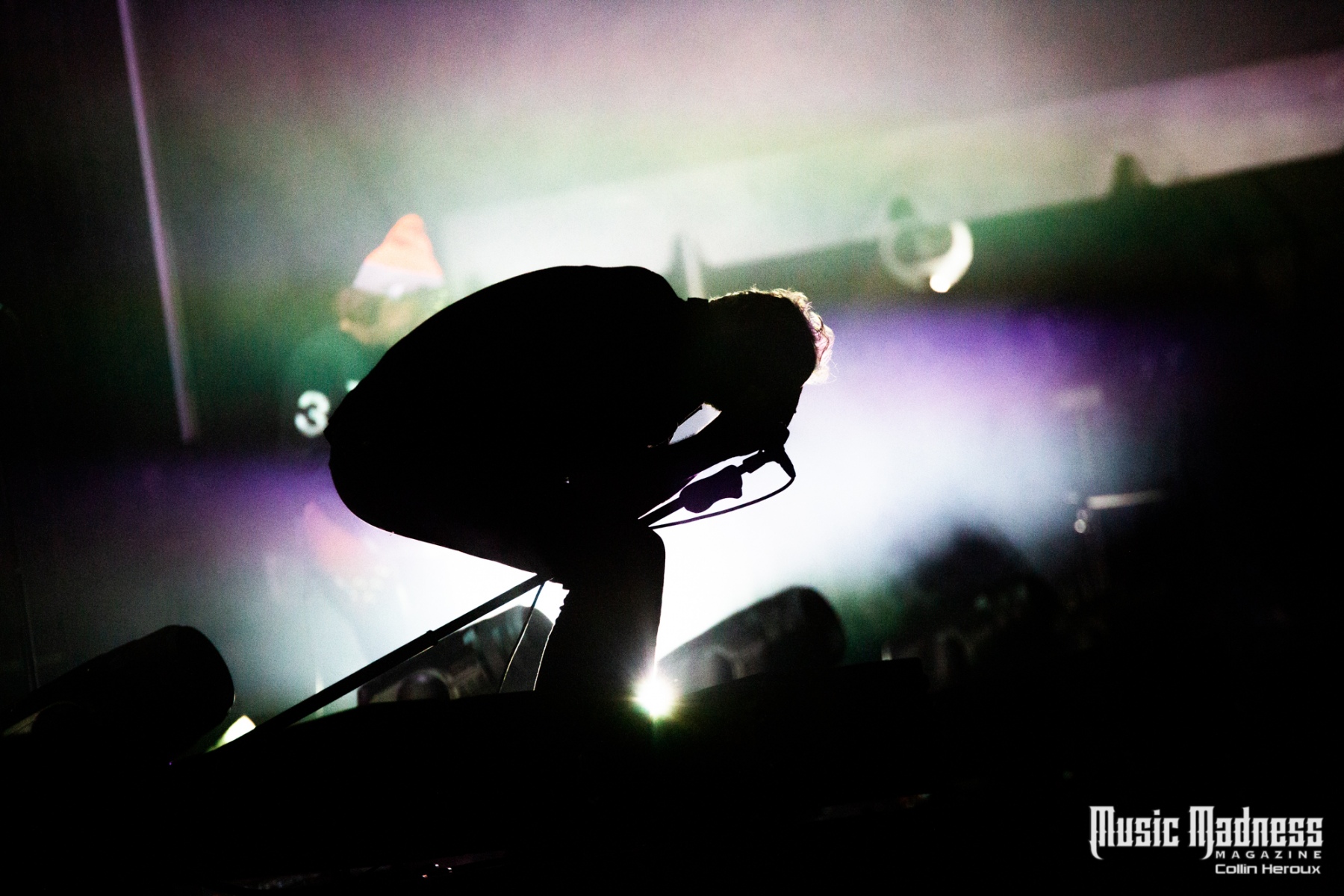
“It’s a great night for crying,” comes the voice of 1960s crooner Johnny Mathis, from his song of the same name, over the PA system as Cincinnati five-piece The National take the stage in Portland, Maine on the tiny peninsula that is Thompson’s Point. Even in the damp, it’s scenic, enveloped by the Fore River, a bridge, and some low green hills. Mathis’ tune is a fitting choice for the band, whose music feels like a warm embrace to the somber listener, all the more true when thousands of them are gathered together as they are on this June night.
For the past twenty years, the Ohio band has built a body of work that has served to ensconce them in the next great generation of rock artists alongside living legends such as Radiohead and Arcade Fire. The field at the Point may be more liquid than solid, there may be no way to get near the stage without slogging through mud at the peril of clothing – but rain or shine, it is in fact a great night for crying.
Like the eponymous concept in the song ‘Sorrow’, from their 2010 breakout album High Violet, The National are a surrogate through which people can have a relationship with their sadness. Frontman Matt Berninger has said he’s not much more morose than the average person – but within his lyrics, countless people have found comfort, empathy, and catharsis; and many of those same folks have packed into this field in the waning moments of a Maine rainstorm to share in that feeling.
The band’s arrival onstage seems to have a tangible effect on the weather, as if they have spirited away the last of the deluge that unsuccessfully threatened the prior set from Australian guitar maestra Courtney Barnett. Berninger, seen as ever with a cup in hand (likely of his go-to white wine), walks to the edge of the stage and waves to the crowd, before joining Kate Stables of This Is The Kit in the center for the lead track of the night, ‘You Had Your Soul With You’. It’s also at the head of their latest record, I Am Easy to Find, which sees the band incorporating more than ever a diverse cast of female guest vocalists, and Stables’ astounding range and delivery are equally important to those of Berninger in their performances of these new songs.
Berninger and Stables are just one of four pairs on the stage throughout the night. Twin brothers Aaron and Bryce Dessner bookend the platform on guitars and keys, while Scott and Bryan Devendorf – another sibling pair – are sequestered deeper in, behind the vocalists, forming the rhythm section. Rounding out the ensemble are Ben Lanz and Kyle Reznick, who are essentially members of the band in their own right by now, as for years they have enhanced the band’s live shows with their brass expertise from their time in Beirut, in addition to adding synths and backing vocals.
The band seems eager to debut and refine tracks from their latest, and the songs come even more alive than on-record by way of Berninger’s unmistakable in-person energy. It’s impressive to see how the band have pivoted from the relatively tight pacing of their previous efforts to the more spacious atmosphere of I Am Easy to Find, and the crowd seems on board for it, singing along to their favorites and reverently following from line to line on newer tracks like ‘Hey Rosey’, which Berninger tells the crowd was written by his wife, Carin, who has been a constant figure in Berninger’s writing – both as creator and subject – for years, ever adding an uplifting lining to his often gloomy output.
There’s also a considerable visual component that makes the night as stimulating to the eyes as it is to the ears. The band have always been fond of their dramatic lighting, beaming down on each member and out into the night above the audience, all backed by a screen that meshes the views of numerous onstage cameras into a living, ever-changing tapestry of the band’s faces interspersed occasionally with lyrics.
For his part, Berninger is a physical performer, thriving, much like his idol Nick Cave, on interaction with the audience. He begins each night stoic, almost still, looking inward; his chiseled face framed by a wiry beard and close haircut that accentuate his statuesque quality. But as the night progresses, he nurses an ever-increasing fervor that begins with him crouching emotively towards the front and making stark eye contact with eager fans, and culminates in numerous trips down metal stairs, across the wood chip floor, up the barrier, and into the crowd. He disappears completely there, reduced to nothing but a moving microphone cable swallowed into the masses, lit only by the occasional phone flashlight. His voice blends in with those around him before he reemerges from the throng, chased by dozens of eager hands and faces, mouths agape, still joining him in song.
Things pick up in this way first with ‘Day I Die’, a lightning rod of a song from 2017’s Sleep Well Beast, and Berninger dives even deeper during Alligator highlight ‘Mr. November’, a look inside the head of a politician losing his nerve before speaking to the public that ends with the desperately impassioned cry of, “I won’t fuck us over!” An overtly left-leaning band that has campaigned for Obama and Clinton over the past decade, the song could also perhaps be read as a tongue-in-cheek reference to the historically crowded Democratic political field of today.
Boxer lead ‘Fake Empire’ appears as things draw still and night falls completely, as if to augment the iconic piano line that begins the song. It, too is more relevant than ever in 2019, with the current administration taking America to new heights of nationalistic bombast propped up by paper-thin falsehoods. The song climaxes with the Dessner brothers approaching each other at the middle of the stage, holding their respective guitars aloft above their heads, Lanz and Reznick carrying the song home on trombone and trumpet.
As is tradition, the band closes with an all-acoustic rendition of High Violet closer ‘Vanderlyle Crybaby Geeks’, with the Dessner brothers coming forward with their acoustic guitars and Lanz and Reznick. The quiet between each verse is absolute save for the unamplified playing of these few instruments, and when the lyrics begin again, one can briefly hear Berninger’s naked voice before the crowd rejoins him. No matter how many times the band closes like this, the rawness and the intimacy of the ritual never loses its resonance. “All the very best of us string ourselves up for love,” goes the main refrain, a line every last person present can shape to their own experiences.
Voices crack and tears are shed. It is precisely this that makes The National an essential live band. Their shows are an act of communion, not with any higher power, but with the deep-seated, universal sadness of life, that, in the end, binds us all together.
Review and photos by Collin Heroux

